The real life consequences of the EU’s equality u-turn

Seventeen years ago, the EU promised to protect people from discrimination in everyday life, not just at work. Now, that promise is being rolled back. The European Commission is preparing to drop a major equality law that would have tackled unfair treatment in schools, hospitals, housing, and more. Here’s what that means, why it matters to you, and what you can do to help stop this happening.
In 2008, the European Commission proposed a directive that would extend protection from discrimination beyond employment. It aimed to cover essential areas of life such as education, healthcare, housing and access to services. The proposal included grounds that remain under-protected across the EU: age, disability, religion or belief and sexual orientation. 17 years later, the directive has still not been adopted, and this February the Commission quietly announced plans to drop it altogether.
The three member states blocking it
Despite broad and consistent support from the European Parliament and civil society, the directive has remained blocked at the Council level since its introduction. Just three member states, Czechia, Germany and Italy were blocking it before the Commission ultimately announced it would withdraw the proposal. Among the reasons they gave were large costs of implementation and political resistance to including anti-discrimination sectors like education and social protection.
Over the years, EU Presidencies have tried to broker compromises. In 2024, the Belgian Presidency proposed a significantly weakened version to try and win over opponents. Key protections around disability, age-based treatment and access to health services were watered down. Even so, no agreement was reached.
Early in 2025, hopes were briefly reignited under the Polish Presidency. But continued opposition from just a handful of governments led the European Commission to announce its intention to withdraw the proposal, stating that consensus was unlikely.
When equality isn’t for everyone
This is not just a legislative failure. It is a failure of political leadership and of moral responsibility. The EU has allowed a small number of governments to block progress on equal protection for millions of people. It has upheld a legal system that recognises some forms of discrimination but not others, creating a hierarchy of protection that contradicts the EU’s own values.
For LGBTI people, people with disabilities, older and younger people, religious minorities and those who live at the intersections of these identities, this means ongoing vulnerability and invisibility in law. You can still be denied an apartment, refused access to healthcare, blocked from seeing your partner in hospital or forced out of school because of who you are. And you may find no EU-level protection to turn to.
Here are just a few examples of what that looks like in real life:
- In Italy, a gay couple was denied a rental flat because the landlord preferred a “traditional family”.
- In Hungary, a community centre refused to rent a space to a lesbian group for a film screening.
- In the Netherlands, several LGBTI people reported harassment by Uber and Bolt drivers during Pride.
The hidden ways this will affect everyone in the EU
The absence of equal protection across the EU is not just a human rights issue. It affects social cohesion, freedom of movement and economic participation. People who are not protected are less likely to relocate, to report abuse, to engage in society. Businesses lose out on talent and consumer trust. Governments struggle to ensure rights are respected, even where national laws exist, due to underreporting, lack of data and inconsistent implementation.
Only strong EU-level legislation can provide a foundation for consistent and equal protection. Just as the Victims’ Rights Directive helped strengthen national systems, this directive could have been the legal backbone of a fairer Europe.
Why the EU must stand firm in its message to the world
Legislation tells a story about the kind of society we want to live in. By failing to adopt this directive, and now preparing to withdraw it, the EU is sending a message that some people’s rights do not matter. That being denied services, harassed, bullied, or excluded from public life is not worth addressing. That equality is not for everyone.
Withdrawing the proposed directive tells LGBTI people, people with disabilities, religious minorities and many others that they are less worthy of respect. That their dignity and safety are not priorities. It gives a licence to those who discriminate against minorities to further do so without consequence.
At a time of rising hate, the EU must stand firm and send a message about who belongs. We see increasing anti-LGBTI rhetoric, racism, sexism and xenophobia. Hate speech and violence have spiked in the aftermath of divisive political campaigns. This is a critical moment. And yet the Commission is proposing to retreat. Law and policy are often the last line of defence for marginalised communities. If the EU abandons this directive now, it will be turning its back on the very principle of equal rights for all.
Have your say
Don’t let the EU turn its back on equality. Sign the petition now!
UN and EU condemn growing crackdown on LGBTI rights and human rights defenders in Belarus.
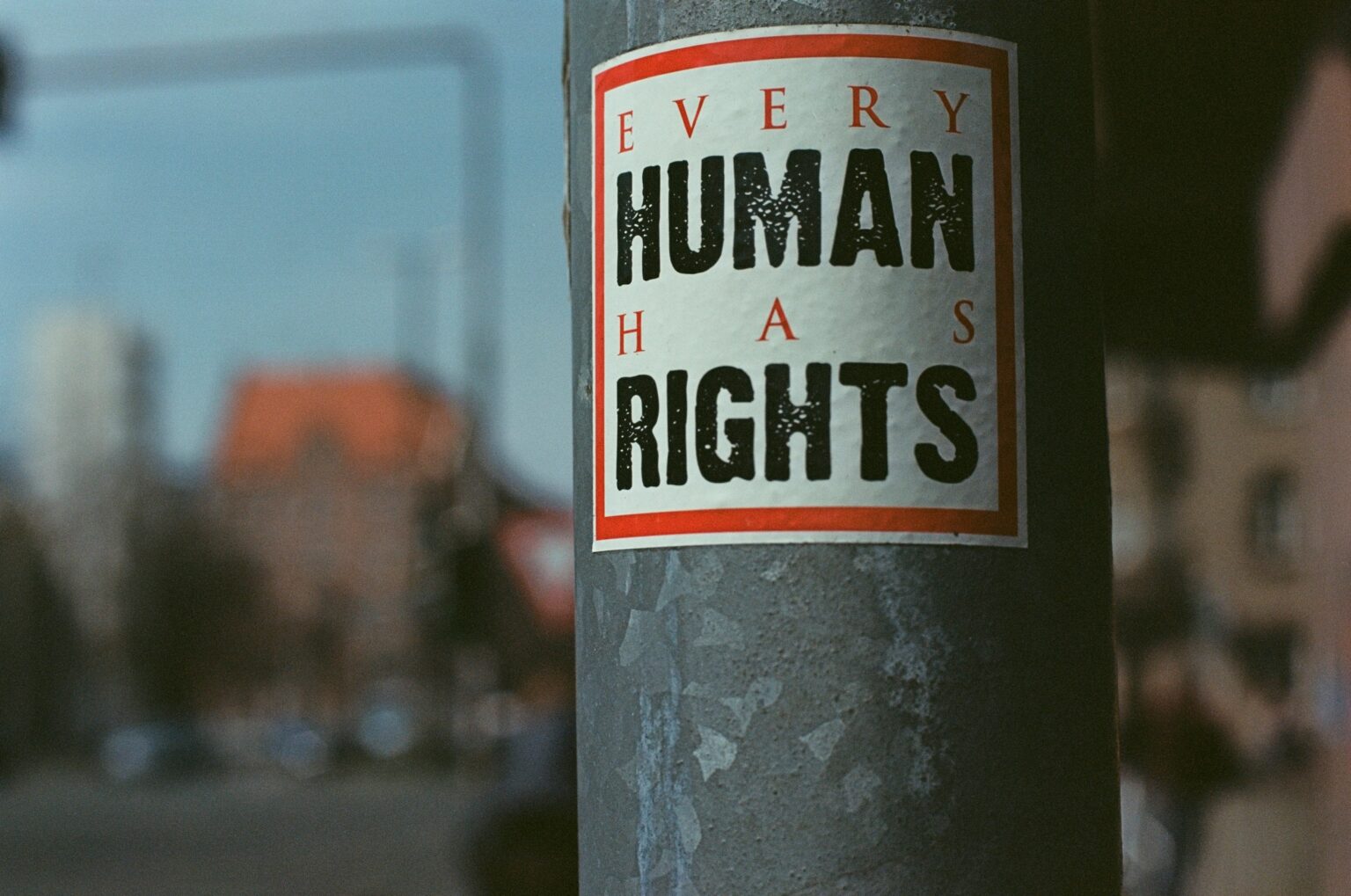
The United Nations has condemned increasing violence, discrimination, and hate speech targeting LGBTI people in Belarus, while the European Union has raised the alarm over the escalating repression of human rights defenders, civil society, and independent media in Belarus.
On 3 April, the UN Human Rights Council adopted a resolution on the human rights situation in Belarus. In this document, the UN body deplored the increasing discrimination, violence, and repression against LGBTI persons. Earlier this year, the UN Group of Independent Experts on the Situation of Human Rights in Belarus highlighted restrictions and censorship of LGBTI-related information, violence and intimidation against LGBTI individuals, and the use of anti-LGBTI hate speech by politicians and law enforcement, among many other concerns.
On 2 April, the European Parliament adopted an urgency resolution on the repression in Belarus. Among other measures, it called on the EU and its Member States to increase support for the media, human rights defenders, trade unions, and civil society initiatives operating both within and outside Belarus. It also called for simplified procedures for obtaining visas, residence permits, and provisional identification documents. Furthermore, the European Parliament encouraged governments to disregard the Belarusian government’s requests for the extradition of political opponents and to impose additional sanctions, particularly on officials responsible for transnational repression.
The absence of a legal and policy framework protecting the human rights of LGBTI people is part of a broader pattern of restrictions on fundamental rights and freedoms. Belarus was ranked 44th out of 49 countries in the latest Rainbow Map published by ILGA-Europe. LGBTI individuals in the country are subjected to systemic repression, with their rights systematically targeted using discriminatory laws and acts of violence. Many LGBTI human rights defenders have been forced into exile.
ILGA-Europe will continue to support the Belarusian LGBTI community, including those in exile, in advocating for an end to ongoing human rights violations and the repeal of discriminatory laws, and contributing to the movement’s long-term strength and sustainability.
This year, the government of Belarus is submitting its report under the Universal Periodic Review at the UN Human Rights Council. We call on UN Member States to include in their recommendations the issue of the ongoing persecution of LGBTI individuals, which is embedded within the broader context of political repression in Belarus.
Why the threat to scrap a long-delayed EU Directive threatens LGBTI Roma rights
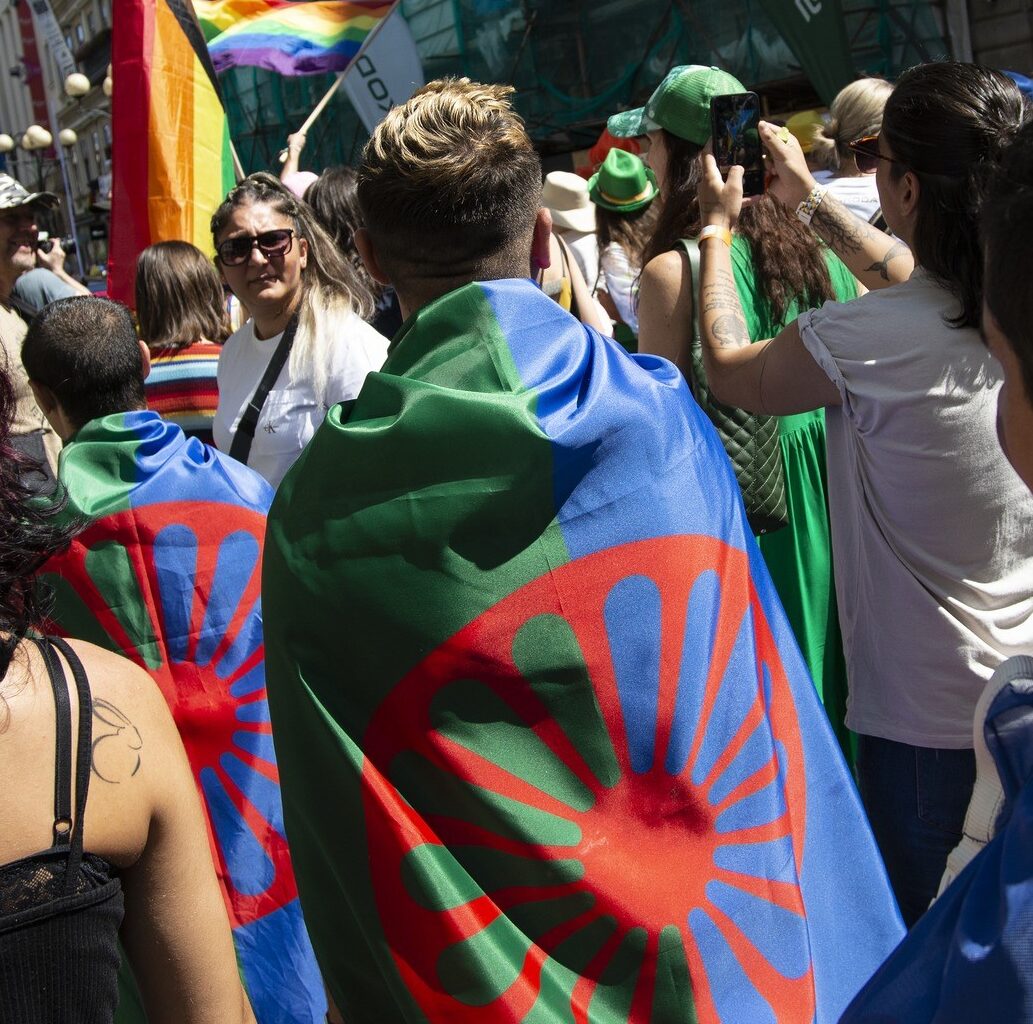
As the EU considers cancelling a crucial anti-discrimination measure, LGBTI Roma are vulnerable to even greater marginalisation. On International Roma Day, we’re mobilising people power to safeguard equality for all.
Today, on International Roma Day, we honour the resilience, creativity, and struggles of Roma communities across Europe. But celebration alone is not enough. As the European Commission signals its intention to withdraw the long-stalled draft Directive on anti-discrimination, we are raising an alarm. This proposed directive, stuck in limbo for over a decade, was never perfect, but it was a crucial step forward. It aimed to establish much-needed EU-wide safeguards against discrimination on the grounds of religion or belief, disability, age, or sexual orientation, extending protection beyond employment.
For Roma communities, and particularly for LGBTI Roma, this directive matters. It is about confronting the intersecting layers of oppression that continue to push LGBTI Roma to the margins – antigypsyism, homophobia, transphobia, and structural exclusion. With rising hate and shrinking civic space, now is the time to strengthen protections, not dismantle them.
ILGA-Europe has launched a joint petition, bringing together civil society allies to urge EU institutions and Member States, especially those blocking progress, such as Czechia, Germany, and Italy, to reconsider. We are calling on the European Commission to reverse the decision to withdraw the Directive, or at the very least, to replace it with a stronger and more inclusive legal framework developed in consultation with civil society.
As Isabela Mihalache, Senior Advocacy Officer on Antigypsyism and Intersectional Justice at ERGO Network, explains:
“The withdrawal of the draft anti-discrimination directive would be a serious blow to Roma communities, who continue to face structural racism, exclusion, and intersectional discrimination. This directive is crucial to ensuring equal protection for all, including LGBTI Roma, who experience compounded vulnerabilities. At a time when hate and antigypsyism are on the rise, the EU must not step back from its commitment to equality and justice. We urge EU leaders to stand firm in defending fundamental rights and to advance, not abandon, protections that Roma and other marginalised groups urgently need.”
In recent years, ILGA-Europe has supported racialised LGBTI groups, including LGBTI Roma-led groups, through the No One Left Behind Fund. This fund provided funding, peer learning, and networking opportunities for LGBTI organisations working for socio-economic and racial justice. These groups work in often hostile environments, with little institutional support, yet with immense courage. Their work is a testament to the urgent need for policies that recognise people in all their complexity.
According to David Tišer, Director of ARA ART, an organisation that combines art, activism, and education to support the Roma LGBTI community and address issues of multiple discrimination:
“At ARA ART, we would like to express our strong stance on the Anti-discrimination Directive proposal and its significance for Roma communities, especially for LGBTIQ+ Roma individuals. This directive is crucial for ensuring equality and protection against discrimination based on ethnicity, gender, sexual orientation, and other factors that impact the daily lives of Roma people.
If the Directive were withdrawn, it would not only mean the loss of legal protection for marginalised groups but also weaken the efforts towards a fair and inclusive society. Such a move would have a devastating impact on our communities, which are already facing systemic discrimination and social exclusion. This moment calls for solidarity and collective action for stronger protection of everyone’s rights. We must stand against all forms of discrimination and ensure that all communities, including LGBTIQ+ Roma, have equal access to rights and protection across Europe.”
As we reflect on the struggles and celebrate the achievements of Roma communities today, it is clear that we are at a moment when the fight for equality and protection must intensify. If the European Commission withdraws the proposed Directive on Anti-discrimination, they will be closing a door on safeguarding equal rights for people across the EU at a time when protection against discrimination is being attacked and dismantled across the world. We cannot allow this to happen. Today, on International Roma Day, sign the joint petition to demand the EU upholds its commitment to ensure protection from discrimination throughout the EU.
The time to act is now – for the sake of Roma, LGBTI, and all marginalised communities across Europe.
CJEU Advocate General: Member States Must Recognise Same-Sex Marriages from Other EU Countries
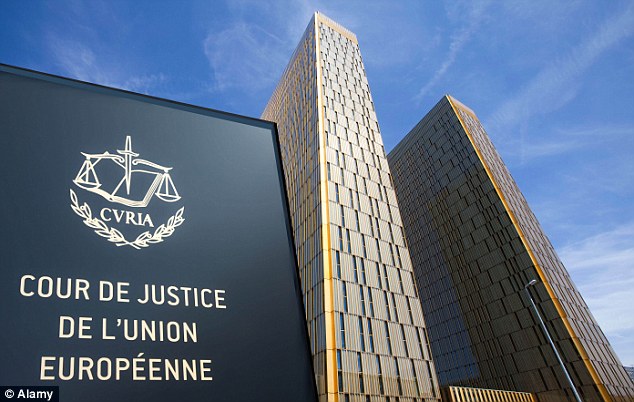
An opinion from the EU Court of Justice’s Advocate General states that Member States must recognise same-sex marriages performed in other EU countries to ensure freedom of movement.
Today, in a significant development regarding the freedom of movement of same-sex couples within the EU, the Advocate General of the Court of Justice of the European Union (CJEU) Richard de la Tour has issued an opinion in the case of Wojewoda Mazowiecki (C-713/23) calling for Member States to recognise a same-sex marriage concluded in another Member State. While he considered that EU law does not require the transcription of the marriage certificate in a civil register, he said that if a country does not allow same-sex marriage and has no other way to recognise one, then it must register the marriage certificate to ensure legal recognition.
The case concerns Poland’s refusal to transcribe into the civil registry a certificate of same-sex marriage contracted in Germany between a Polish citizen and a Polish-German citizen. The couple currently resides in Poland.
The Court is asked in this case whether this refusal conforms with the provisions of the Treaty on the Functioning of the European Union (TFEU) and of the Free Movement Directive, read in conjunction with the Charter of Fundamental Rights of the EU, particularly the right to respect for private and family life and the prohibition of discrimination.
In this respect, the Advocate General said that the absence of any recognition of a marital relationship established in another Member State limits the freedom of EU citizens to move and reside, which is guaranteed to them by EU law. Moreover, not to recognise that relationship is liable to undermine the right to respect for private and family life.
Consequently, the Advocate General said it is for the Member States which do not provide for same-sex marriage to establish appropriate procedures to ensure that such marriages concluded in another Member State are made public with respect to third parties. Such procedures are designed not to leave same-sex couples in a legal vacuum and to regulate fundamental aspects of their life, such as those concerning property, taxation or inheritance.
This case marks a significant step towards the protection of same-sex couples across the EU, especially in light of the recent European Court of Human Rights judgments in Przybyszewska and Others v. Poland which found the Polish state in violation of Article 8 (right to respect for private and family life) of the ECHR for failing to provide a specific legal framework recognising and protecting same-sex unions, and in Formela v. Poland, which found that Poland breached the same provision for failing to recognise the relationships of two same-sex Polish couples married abroad.
Accordingly, the Advocate General observed that, in view of the absence of alternative solutions in Poland for enabling the marital status to be proven – such as the submission of any other official document that may be recognised by the Polish authorities – Poland is under an obligation to transcribe the same-sex marriage certificate.
According to Strategic Litigation Officer with ILGA-Europe Sinéad Gough: “This opinion is going a step further than what the Court’s ruling in Coman, which established that EU Member States must recognise same-sex spouses for the purpose of residency rights under EU free movement laws. This new opinion goes further by recognising the need for Member States to acknowledge same-sex marriages so that couples can access the same rights and benefits as different-sex couples in their country of residence. The opinion confirms that the transcription of marriages in civil registries is the only way to effectively ensure the free movement of same-sex couples in the EU, particularly in countries that still lack any legal framework recognising same-sex unions.”
This is yet another very strong call on the European Commission to fully ensure the rights of same-sex couples in the framework of free movement across the EU, including by finally opening infringement procedures on the non-implementation of the Coman judgment by Romania.
Attorneys Pawel Knut and Artur Kula from KMA Law Firm, the lawyers representing the applicants in the case, said that: “The opinion of the Advocate General de la Tour stays in line with our position in this case: if a Member State does not provide any other possibility of the recognition of the marriage between persons of the same sex than a transcription, then such a transcription should be obligatory. We hope that the CJEU will follow this approach, as it is the only way to finally overcome the current legal deadlock in Poland.” .
As the CJEU deliberates on this case, there is a collective hope that the judgment will align with the opinion of the Advocate General and ensure the recognition by Polish authorities of the foreign same-sex marriage certificate, in view of the absence of recognition of these marriages in the country.
The judgment is expected to be delivered later on this year.
ILGA-Europe is providing support to the applicants and their lawyers in this case.
Joint statement: Paving the way for an equality-centred policy cycle
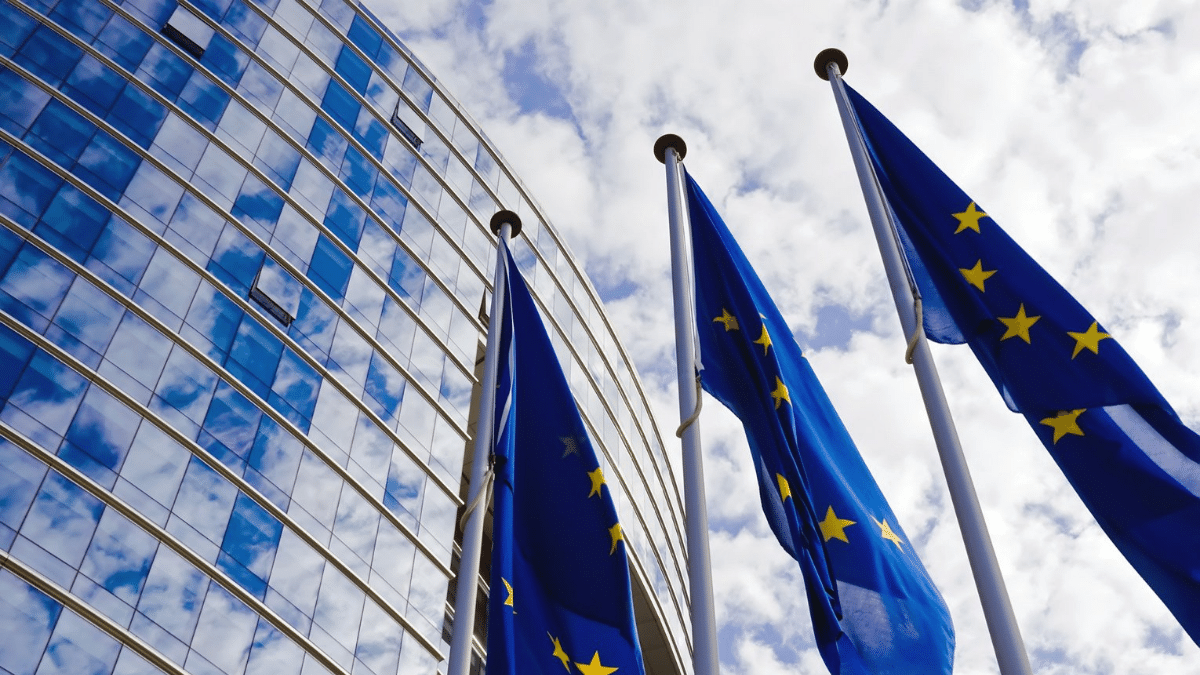
Along with 140 civil society organisations across the EU, we are calling on EU leaders to include equality & non-discrimination as central priorities in the EU work programme for the next five years.
The European Union was founded on the principles of equality and non-discrimination. Yet too many people continue to face discrimination and inequality across the Union, including intersectional and multiple forms of discrimination in all aspects of their lives.[1] In the current climate, it is now imperative that the EU institutions strengthen their resolve to take meaningful and urgent action to address this reality.
As European Union leaders decide on their priorities for the 2024-2029 cycle, we call on them to ensure that equality and non-discrimination are included as central priorities in the EU work programme for the next five years. Only by centring equality and protection from discrimination in this way can the EU truly respond to the key concerns of people living in the Union.
The equality and non-discrimination agenda was afforded increased visibility and action during the last five years as a result of the ambitious “Union of Equality” agenda and the appointment of the first Commissioner for Equality. This led to unprecedented progress in efforts to advance equality and non-discrimination across EU policy making. Progress included the adoption of important initiatives such as the Directive on violence against women, inaugural Gender Equality and LGBTIQ Equality Strategies, an Anti-Racism Action Plan, a Green Paper on Ageing, an Action Plan on Integration and Inclusion, a Strategy to strengthen the application of the Charter of Fundamental Rights in the EU, as well as the renewal of the Strategy for the Rights of Persons with Disabilities and the EU Roma strategic framework.
At this critical juncture, it is vital that the EU continue to prioritize efforts to guarantee the founding values of equality and non-discrimination, to advance the entire package which comprises the Union of Equality, and to ensure an intersectional approach to this agenda. Failure to do so would seriously jeopardise progress in this area and mark a very dangerous step backward.
To this end we call on EU leadership to take the following steps:
- Appoint a Commissioner for Equality and Fundamental Rights, ensuring the mandate has the power to renew and deepen the Union of Equality agenda and nominating a candidate with a demonstrated commitment to equality;
- Strengthen the Union of Equality agenda by introducing new strategies to address grounds not already covered, mainstreaming all strategies across policy areas and renewing and building-out existing equality strategies, such as the Gender Equality Strategy, LGBTIQ Equality Strategy, the EU Anti-Racism Action Plan, the Action Plan on Integration and Inclusion, the EU Strategy on the rights of persons with disabilities and the Roma strategic framework;
- Ensure the next EU budget includes robust funding streams for civil society organisations working on equality and non-discrimination;
- Ensure equality and non-discrimination objectives are also core components of EU priorities in the sphere of international cooperation, external and humanitarian action;
- Maintain the current status of the Parliament’s Committee on Women’s Rights and Gender Equality and refrain from weakening its mandate;
- Establish a Council configuration dedicated to equality in the EU and ensure concrete commitments towards implementation of equality strategies by member states;
- Establish a new Directorate-General for Equality and Fundamental Rights thereby strengthening the Commission’s ability to design and monitor equality and non-discrimination laws and policies;
- Renew and upgrade the mandates of the Commission Coordinators working on equality, ensuring a focus on intersectionality during this term;
- Entrust the Commission Task Force on Equality with a strong mandate and ensure it works transparently and in close consultation and cooperation with civil society organizations and networks.
As 143 civil society organisations with significant expertise on equality, and as representatives of groups at increased risk of discrimination across the EU, we issue this call as a testament to our solidarity with each other, and urge EU leaders to ensure that the people most affected by EU policies and legislation on equality and non-discrimination are always involved in their development and implementation.
- A Scuola Per Conoscerci, Italy
- ACCEPT LGBTI Cyprus
- ACCEPT Romania
- ACT Alliance EU
- AESCO (América, España, Solidaridad y Cooperación)
- Agapanto, Italy
- AGE Platform Europe
- Agedo Nazionale, Italy
- Aidos (Italian Association for Women in Development)
- ALFI – Associazione Lesbica Femminista Italiana, Italy
- AlfiLune, Italy
- Amnesty International
- Amref Health Africa – Italy
- Anemos Dimiourgias – Greece
- ANTAMA (Greece)
- Anti-Discrimination Centre Memorial Brussels
- APRe! Associação de Aposentados, Pensionistas e Reformados (Portugal)
- ARCIGAY LGBTQIA+ Association, Italy
- ASKV Refugee Support
- Asociación de Investigación y Especialización sobre Temas Iberoamericanos – AIETI (Spain)
- Asociación Por Ti Mujer
- Association Bagdam Espace Lesbian – France
- Association Legebitra, Slovenia
- Association Liberas – Italy
- Association for Monitoring Equal Rights / Eşit Haklar İçin İzleme Derneği (Turkey)
- ASTRA Network
- ATDAL Over 40 (Italy)
- Austrian Disability Council
- Austrian Family Planning Association (OGF)
- Autism-Europe
- Avaaz
- Avocats Sans Frontières
- Belgian Disability Forum (BDF)
- Brain Injured and families European Federation (BIF)
- çavaria, Belgium
- Center for Gender Rights and Equality DIOTIMA
- Center for Reproductive Rights
- Certi Diritti, Italy
- Circolo di Cultura Omosessuale ” Mario Mieli”, Italy
- Civil Rights Defenders
- COC Nederland
- Cologne Counselling – Germany
- Confederación Sindical de Comisiones Obreras (CCOO)
- Dachverband Lesben und Alter e.V. – Germany
- Danish Family Planning Association
- Deutscher Behindertenrat (DBR)
- Disabled Peoples’ International European Region (DPI Europe)
- Doctors of the World Spain
- Društvo Parada ponosa – Slovenia
- EDGE, Italy
- EMAIZE Sexologia Zentroa – Centro Sexológico
- End FGM EU
- Epen, El Parto es Nuestro
- EuroCentralAsian Lesbian* Community (EL*C)
- European Blind Union (EBU)
- European Disability Forum
- European Dyslexia Association
- European Federation of Hard of Hearing People
- European Network Against Racism (ENAR)
- European Roma Grassroots Organisations Network (ERGO Network)
- European Sex Workers’ Rights Alliance (ESWA)
- European Women’s Lobby
- Famiglie Arcobaleno APS, Italy
- Federación de Mujeres Progresistas
- Fédération Laïque de Centres de Planning Familial (FLCPF)
- Foundation for Women and Family Planning (FEDERA)
- French Family Planning / le Planning Familial
- Fundación Aspacia
- GAMS Belgium (Groupe pour l’Abolition des Mutilations Sexuelles féminines)
- Gaynet – Formazione e Comunicazione sui temi Lgbti, Italy
- GenderLens, Italy
- General Commission for Justice and Peace of Spain
- GLAS Foundation, Bulgaria
- Haurralde Fundazioa
- HelpAge International
- HelpAge International Spain
- Human Rights Watch
- IGLYO
- ILGA-Europe
- Iniciatíva Inakosť, Slovakia
- International Commission of Jurists
- International Dalit Solidarity Network (IDSN)
- International Disability and Development Consortium (IDDC)
- International Federation for Human Rights (FIDH)
- International Federation of Persons with Physical Disabilities (FIMITIC)
- International Institute on Race, Equality and Human Rights
- International Planned Parenthood Federation European Network (IPPF EN)
- IntersexEsiste, Italy
- Irish Family Planning Association
- Jovesólides
- Kif Kif vzw
- KISA
- Kvinna till Kvinna Foundation
- La Coordinadora de Organizaciones para el Desarrollo (Spain)
- La Strada International
- Labrisz Lesbian Association – Hungary
- LesbenRing e.V. – Germany
- Lesbian Magazine and Program Organizing Association – Hungary
- Lesbian Organisation Rijeka – LORI – Croatia
- LesWorking – Spain
- LGBT Ireland
- LGBT komiteen – The LGBT Committee, Denmark
- Light for the World
- LSVD, the Lesbian and Gay Federation, Germany
- Malta Federation of Organisations Persons with Disability (MFOPD)
- Malta LGBTIQ Rights Movement (MGRM)
- medicusmundi
- Mujeres Jóvenes de la Región de Murcia: 8 de marzo (MUJOMUR)
- Mujeres Supervivientes de Sevilla
- National LGBTI Rights Organization LGL – Lithuania
- NET.Collect – Germany
- Nőkért Egyesület / Association for Women, Hungary
- Nothern Ireland Council for Racial Equality (NICRE)
- OII Europe
- Older Women’s Network
- PA.SY.D.Y. Pensioners Union (Cyprus)
- Platform for International Cooperation on Undocumented Migrants (PICUM)
- Polish Women’s Strike
- Possibile LGBTI+, Italy
- PRISME – Fédération wallonne LGBTQIA+, Belgium
- pro familia Bundesverband
- Quaker Council for European Affairs
- Queer Base – Welcome & Support for LGBTIQ Refugees – Austria
- Queer Sisterhood Cluj – Romania
- Quore, Italy
- Rainbow Families Croatia
- Red de Mujeres Latinoamericanas y del Caribe – España
- Rete Genitori Rainbow, Italy
- RFSL, Sweden
- Rutgers
- Save the Children
- SB Overseas
- Sdružení pro integraci a migraci (SIMI) / Association for Integration and Migration
- SEDRA-Federación Planificación Familiar
- Sensoa
- Society for Education on Contraception and Sexuality – SECS
- SolidarityNow
- Stichting LOS, Netherlands
- Terre des Femmes
- TGEU – Transgender Europe
- Toutes des Femmes -France
- Turun Valkonauha ry, Finland
- Women Against Violence Europe – WAVE Network
- Zavod Moja mavrica – Slovenia
- Zavod Transfeministična Iniciativa TransAkcija – Slovenia
[1] Throughout the text, “equality and non-discrimination” is to be understood as encompassing equality and non-discrimination in the enjoyment of the full range of human rights, including all civil, political, economic, social and cultural rights.
EU Election results: The challenges & opportunities
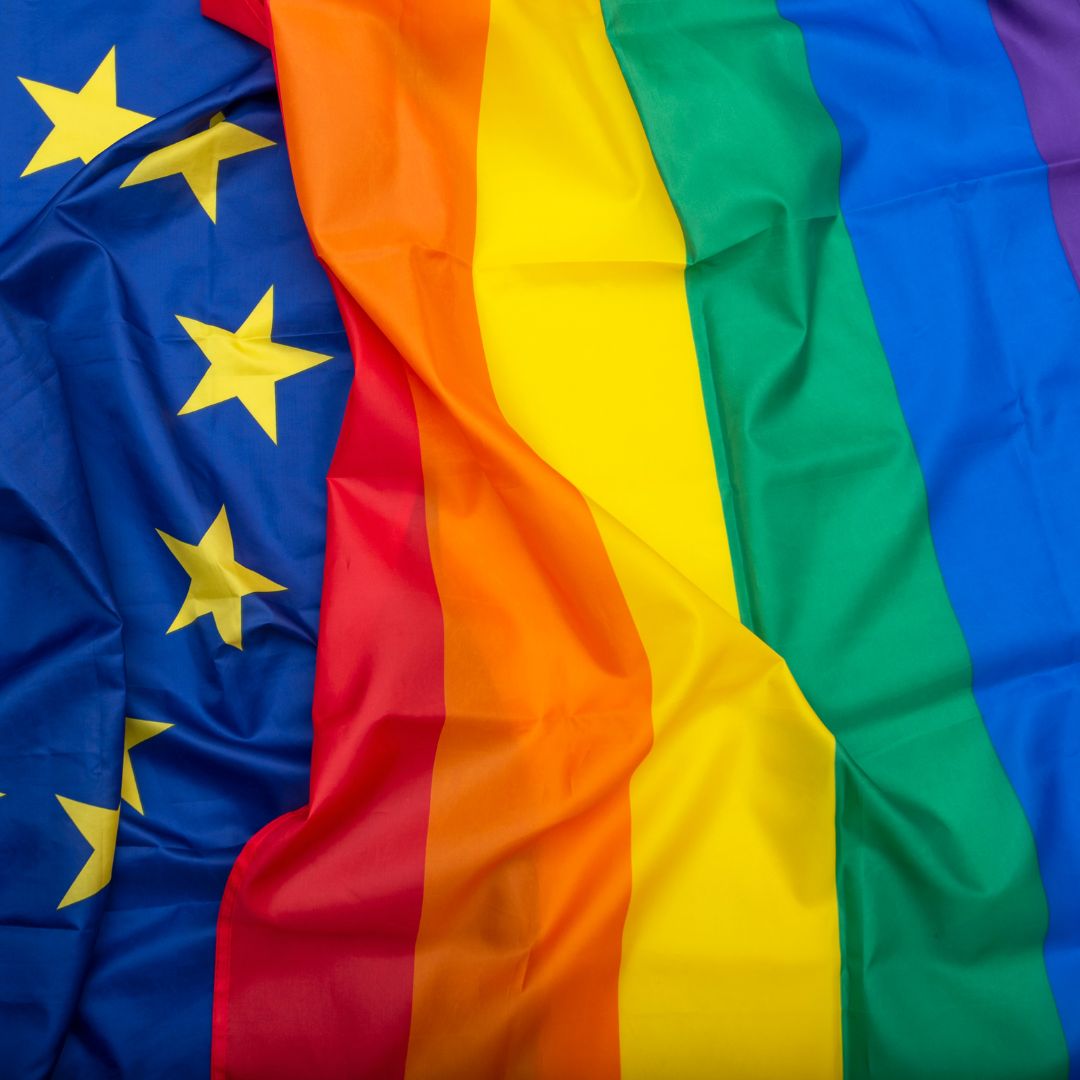
Today we dive into the mixed results of the European Elections, the shift to the far right in national elections, and the potential impact of it all on LGBTI human rights in the EU and beyond.
This blog is based on a conversation between our Advocacy Director, Katrin Hugendubel, co-chairs of the LGBTI Intergroup at the European Parliament, Marc Angel and Kim van Sparrentak, and activists Luca Dudits from Hungary and Roberto Muzzetta from Italy for a special Frontline podcast episode.
The results of the recent European Elections, which weren’t the radical shift to the far-right that was being predicted, revealed a mixed picture for LGBTI rights advocates. Marc Angel and Kim van Sparrentak expressed cautious optimism. While their personal victories and the re-election of LGBTI allies in their respective countries gave them cause for celebration, the broader rise of the far right across Europe remains a significant concern. Both stressed the need for strong collaboration with civil society and activists to counteract this trend and protect human rights.
Turning points in Hungary and Italy?
In Hungary, the challenged to Viktor Orbán’s government by Péter Magyar — a former ruling party insider-turned-rival — and his Tisza party marked a significant development. Magyar secured a substantial portion of seats, indicating a shift in the political dynamics that could open new avenues for advancing LGBTI rights. Luca Dudits from Hatter Society described the election as one of the most exciting campaigns in recent history, reflecting a growing political engagement among those opposed to Orban’s policies. However, she was cautious in her assessment of Magyar, who failed to mention LGBTI human rights in his campaign and made broad references to tackling propaganda. Whether this is the anti-LGBTI propaganda spread by Orbán or percieved ‘LGBTI propaganda’ remains to be seen. Dudits said that activists in Hungary will be engaged over the coming months in seeking to make contact with Magyar and his party to ascertain their commitment.
Italy also witnessed a blend of hope and caution. Roberto Muzzetta from Arcigay noted the substantial effort put into mobilising the LGBTI community by Italian activists, resulting in a greater presence of LGBTI allies in the European Parliament. Despite this, the far-right influence remains strong, particularly with Giorgia Meloni’s continued dominance. However, according to Muzzetta, the rise of progressive voices provides a counterbalance that could influence future policies and elections.
Challenges from the far-right surge
The election results across Europe show a worrying trend: the significant gains made by far-right parties. This shift is not only visible at the EU level but is also permeating national politics in countries like France, Germany, Austria, and the Netherlands. Such a trend poses direct threats to the advancement of human rights, particularly for the LGBTI community.
Kim van Sparrentak and Marc Angel, re-elected MEPs and co-chairs of the LGBTI Intergroup, expressed their concerns about this political shift. They emphasised the need for strong collaboration with civil society and activists to counteract the far-right rhetoric. They highlighted the importance of building majorities with allies who support human rights and resist anti-gender rhetoric, warning against the potential realignment within the European People’s Party (EPP) that could jeopardise LGBTI rights.
Strategic responses and solidarity
A strategic and united response to the rise of far-right politics is crucial. Marc Angel stressed that the EPP must avoid collaboration with far-right populists to maintain the integrity of the European Parliament’s commitment to fundamental rights and the rule of law. He called for the parliament to remain a strong advocate for democracy, particularly given the anticipated conservative shift within the European Commission.
Civil society and grassroots activism were identified as crucial elements in this struggle. The tireless work of activists on the ground, often in hostile environments, provides the backbone for advancing LGBTI rights. Kim van Sparrentak underscored the importance of maintaining strong networks within the European Parliament and across member states to support these activists.
Roberto Muzzetta emphasised the importance of consistent and balanced human rights advocacy by European institutions. He called for careful language use by politicians to avoid further polarisation and to support inclusive discourse on LGBTI issues.
Looking forward with hope
Despite the challenges, the resilience and determination of activists and supportive politicians offer some hope. Both Marc Angel and Kim van Sparrentak are committed to fostering a strong LGBTI intergroup in the European Parliament and working closely with activists to continue the fight for equality. They stressed the importance of mobilising the silent majority to stand against far-right rhetoric and support inclusive policies.
Luca Dudits and Roberto Muzzetta echoed these sentiments, highlighting the value of international solidarity and learning from each other’s experiences. They stressed the need for continued support from European institutions and the importance of framing LGBTI rights in terms that resonate with broader values like safety, love, and freedom.
The political landscape in Europe is rapidly evolving, presenting both opportunities and challenges for the LGBTI community. While the rise of the far-right is concerning, the solidarity and strategic efforts of activists and supportive politicians provide a pathway forward. By continuing to build alliances, advocating for inclusive policies, and mobilising broader support, there is hope for advancing LGBTI rights across Europe.
Listen to the podcast here.
What the EU Election Results Will Mean for LGBTI Human Rights
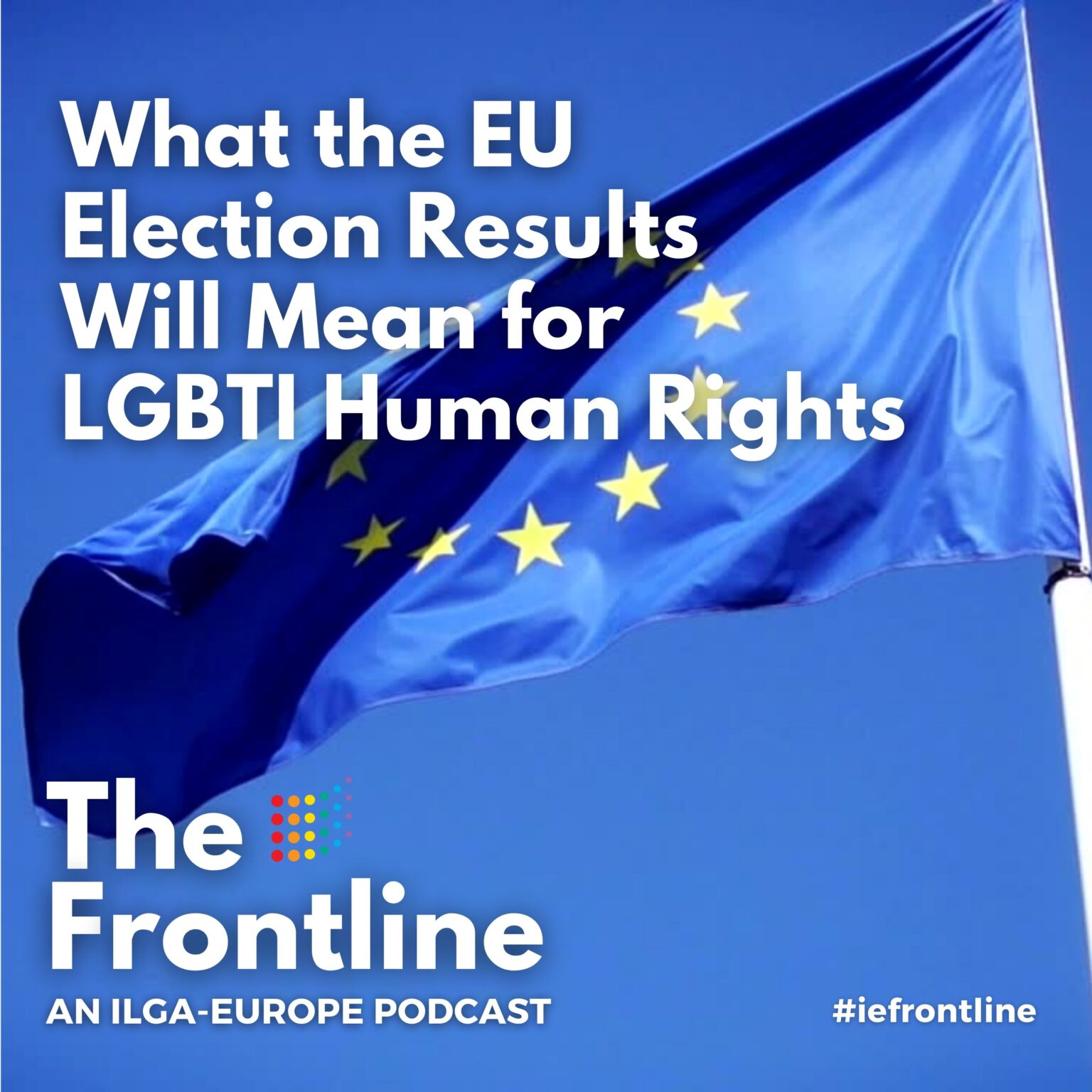
In our special post-European elections podcast, we sit down with MEP’s from the LGBTI Intergroup at the European Parliament and activists from Italy and Hungary to discuss how the outcomes, both on the European and national levels will play out for LGBTI human rights in the EU and beyond.
Although the swing to the far right predicted in the European elections hasn’t been as radical as expected, with the progressive and centre-right still holding a majority of seats, there have been seismic shifts to the right in a number of member states, including Germany, France and Austria.
In this episode of The Frontline we take a look at that this might all mean for LGBTI human rights in the EU over the coming years. Joining our Advocacy Director, Katrin Hugendubel to discuss the election results, the campaigns that led to them, and what the way forward might be are are co-chairs of the LGBTI Intergroup at the European parliament, freshly re-elected MEP’s Marc Angel from the Socialists & Democrats in Luxembourg and Kim van Sparrentak from the Greens/EFA in The Netherlands, alongside activists Luca Dudits from Hatter Society in Hungary and Roberto Muzetta from Arcigay in Italy.
The intersecting consequences of a possible far-right vote in the European elections
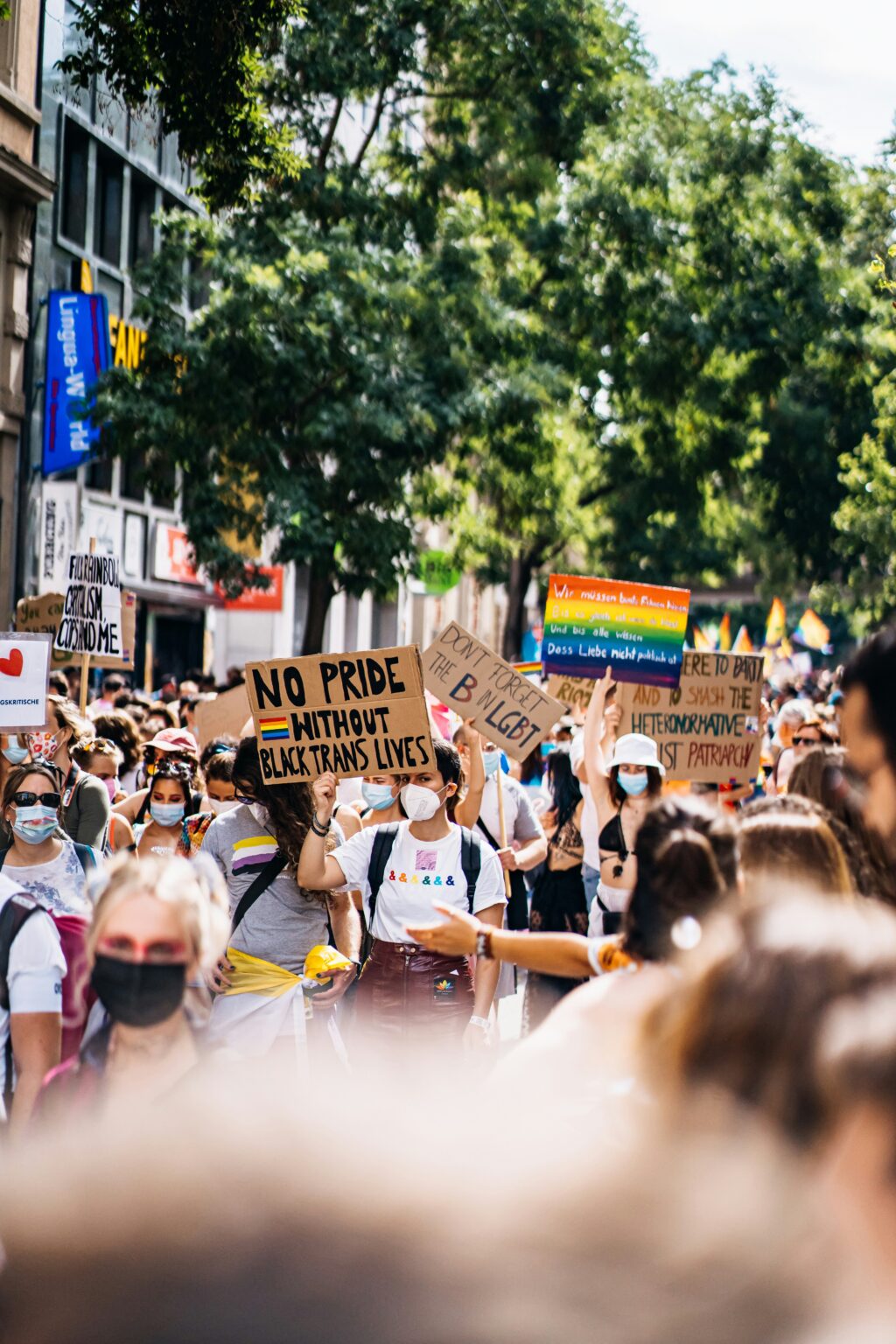
With the polls predicting significant gains for the far-right in the European elections, there could be serious consequences for the climate, human rights, migrants, and the rule of law.
As the European elections approach, the polls predict a significant shift towards the far-right. This anticipated surge reflects a broader trend of increasing nationalism across Europe. In countries such as Italy, France, and Germany, far-right parties are gaining ground, often by exploiting economic anxieties and societal fears. This shift threatens to undermine the progress made on issues such as climate change, human rights, and the rule of law, while the fate of migrants in member states may be even more negatively impacted.
Who will Come Out 4 Europe?
In this challenging landscape, the Come Out 4 Europe campaign represents hope. With over a thousand candidates pledging their commitment to LGBTI rights, this initiative provides a valuable resource for voters. The campaign offers a list of candidates who are dedicated to fighting discrimination and advocating for equality. They have committed to protect and advance LGBTI rights, but we only accepted signatures from candidates who respect and promote the full spectrum of human rights.
A fairer, more inclusive, and sustainable society for all
Voting in the upcoming EU elections is about protecting LGBTI rights, but it’s also about standing up for all marginalised identities across Europe. It is about defending the rights of racial and ethnic minorities who face systemic discrimination, ensuring that all individuals, regardless of gender identity, have access to comprehensive healthcare, supporting people with disabilities in their fight for accessibility and inclusion, and advocating for the rights of immigrants and refugees seeking safety and a better life. Additionally, it’s about committing to the environmental fight, ensuring that policies address climate change and protect our planet for future generations. By voting for candidates who support and will work for human rights and equality rather than those who will seek to erode freedoms, we are standing up for everyone who is vulnerable to oppression and discrimination, and we are working towards a fairer, more inclusive, and sustainable society for all in the European Union.
By supporting candidates who embrace intersectional policies, we can ensure that our collective struggles are addressed.
Spread the word
You have powerful networks at your disposal. Use your platforms to spread this message far and wide. Encourage your members, allies, and the broader community to vote in the upcoming elections. Emphasise the necessity of standing together against far-right forces. Let’s remember the power that lies in our hands. Together, we can impact the outcome of these elections.
EU Elections Candidates Across Europe Are Vowing to Support LGBTI Human Rights
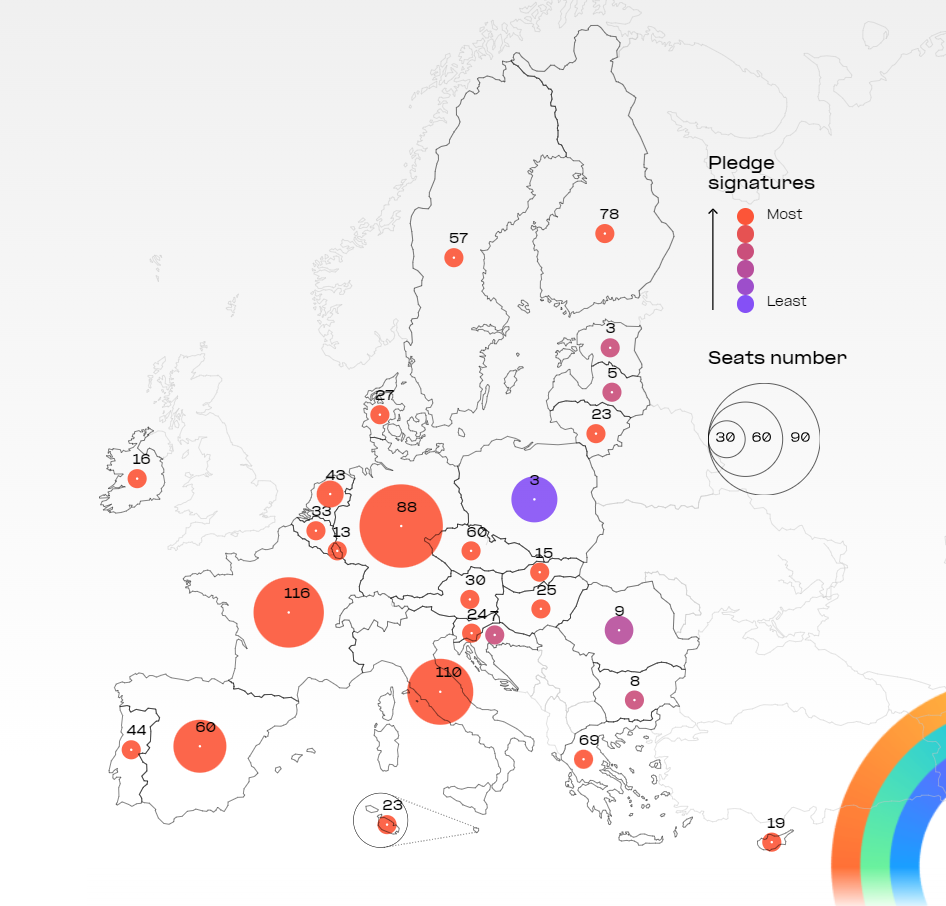
As voters get ready to go to the polls in the European Elections, over a thousand candidates across Europe have pledged to protect and advance LGBTI human rights if they are elected
Download this press release in Finnish, French, Italian, German, Portuguese and Spanish.
While authoritarian leaders across Europe continue to use the scapegoating of LGBTI people to divide and mobilise their electorates, the rising number of candidates singing up to the Come Out 4 Europe pledge proves that many have their sights set on voters who seek and support the protection and advancement of LGBTI human rights in the EU.
Now in their thousands, candidates in 27 countries have signed ILGA-Europe’s Come Out 4 Europe pledge, which asks them, if elected, to propose and advocate for EU policies and laws; actively engage on rule of law, democracy and inequality; make sure the EU uses all its powers to hold Member States accountable for violations of the human rights of LGBTI people, and act as a strong defender of LGBTI organisations and human rights defenders across Europe and beyond.
While larger countries like Germany and France lead in the numbers of signatories, following close behind are countries where LGBTI rights have not traditionally been high on the agenda, such as Italy with 110 candidates for 76 seats, Greece (69 candidates for 21 seats), Lithuania (23 candidates for 11 seats, and Finland (78 for 15 seats).
The top four European parties with candidates who have committed to LGBTI human rights are, in ascending order, Renew; The Left; S&D; and Greens/EFA.
For the full Come Out 4 Europe pledge, which also asks candidates how they intend to live up to their commitments click here.
Quote from Chaber: “The sheer numbers of candidates signing up with very real commitments to protect the human rights of LGBTI people should they be elected, along with showing how they intend to live up to those promises, shows that many politicians are standing strong amidst growing attacks on LGBTI rights, and are willing to work with us, and other LGBTI organisations and activists to counter polarisation and the scapegoating of LGBTI people in political divides. Now, it is time to go out and use your vote for those politicians.”
The candidates in countries across the EU who have pledged to protect and advance LGBTI human rights if they are elected can be found at www.comeout.eu.
About Come Out 4 Europe:
The Come Out 4 Europe campaign seeks to mobilise votes for candidates in the European Elections 2024 who will support, protect and advance LGBTI rights as part of their mandate. It does this by directing voters to candidates who have signed a detailed pledge, which includes the ways in which they will live up to their commitments if elected. Come Out 4 Europe comes from ILGA-Europe, an independent, international non-governmental umbrella organisation uniting over 700 LGBTI organisations from 54 countries across Europe and Central Asia. ILGA-Europe works for a world in which each and every LGBTI person is free, equal and safe, through resourcing and connecting communities, driving political change, and amplifying voices. Find out more here.
The current numbers of candidates per country:
Austria – 30
Belgium – 32
Bulgaria – 8
Croatia – 7
Cyprus – 19
Czechia – 60
Denmark – 27
Estonia – 3
Finland – 78
France – 116
Germany – 88
Greece – 69
Hungary – 25
Ireland – 16
Italy – 110
Latvia – 5
Lithuania – 23
Luxembourg – 13
Malta – 23
Netherlands – 43
Poland – 3
Portugal – 44
Romania – 9
Slovakia – 15
Slovenia – 24
Spain – 60
Sweden – 57
Hundreds of European election candidates pledge to protect LGBTI rights
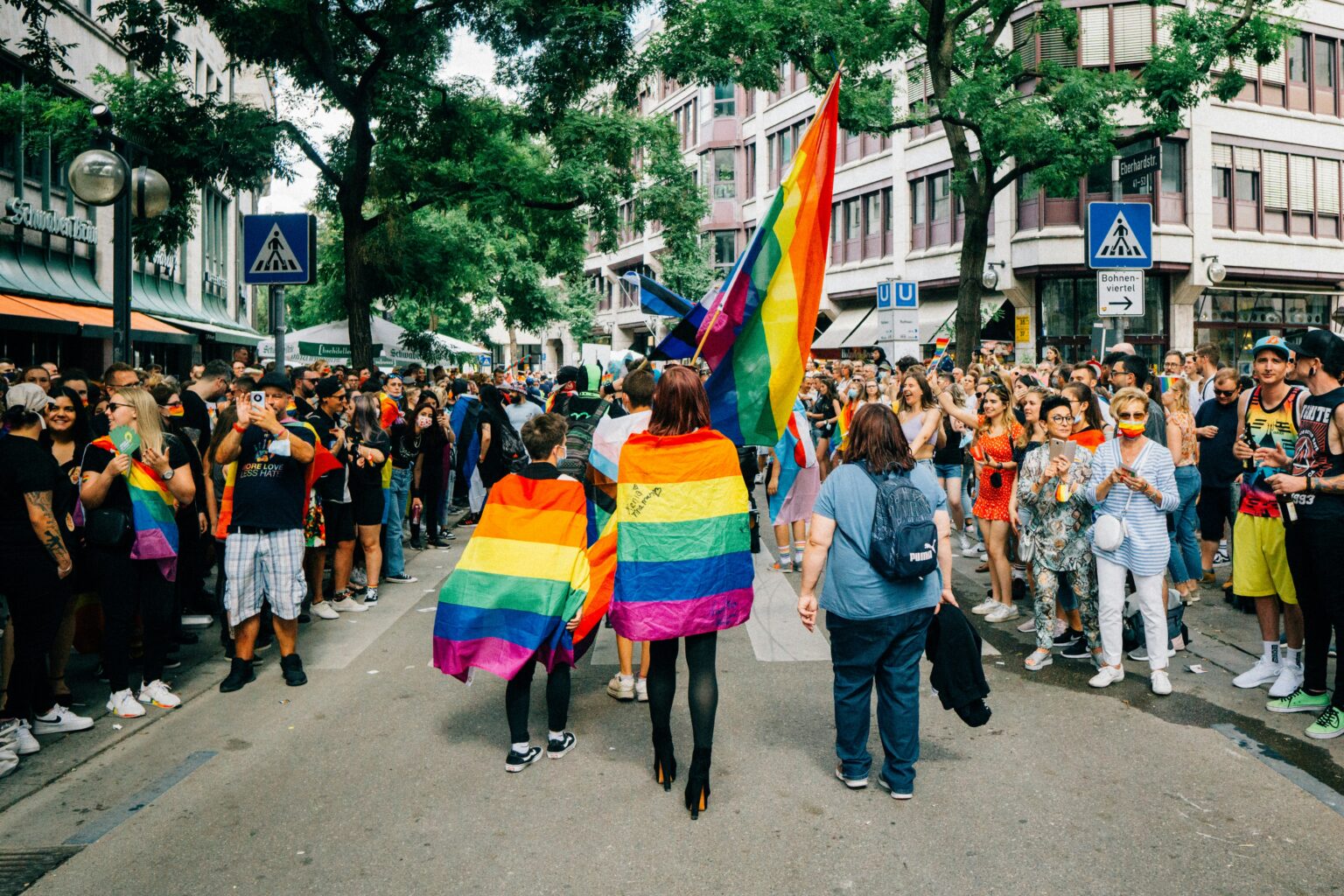
Amid fears of a rise in the far-right in the European elections this June 6-9, the number of candidates who are demonstrating their support for LGBTI human rights, freedom and democracy is profound
With hundreds of candidates signing on to ILGA-Europe’s the Come Out 4 Europe campaign, showing their commitment to the protection and advancement of LGBTI human rights, this initiative has captured the attention of candidates and voters alike, igniting support for LGBTI rights across the EU. These candidates aren’t just showing support online; they’re making a bold statement about their values and priorities as voters get ready to go to the polls less than two weeks’ time. Each signature represents a promise to fight against discrimination and advocate for the rights of LGBTI communities.
The pledges against rising intolerance
In an era where authoritarian leaders across Europe are continuously using LGBTI people as targets to divide and mobilise their electorates, the significance of the Come Out 4 Europe campaign cannot be overstated. The annual Rainbow Map, published by ILGA-Europe earlier this month, highlights the urgent need for legal protections to safeguard fundamental rights. As the report illustrates, many countries are stalling in moving legal protections forward, risking the rapid erosion of human rights under newly elected governments influenced by far-right ideologies.
The moment for the European democracy
The Come Out 4 Europe campaign marks a pivotal moment in European politics. Politicians are no longer treating LGBTI rights as a mere afterthought or a convenient scapegoat. Instead, they’re embracing these rights as a fundamental pillar of democracy and equality. It’s a remarkable shift in mindset that speaks volumes about the progress we’ve made, and what lies ahead.
The significance of the Come Out 4 Europe campaign extends far beyond mere symbolism. Each signature represents a tangible commitment to action—a promise to fight against discrimination and champion the rights of LGBTI people. It’s a bold statement that sends a clear message to voters: when you cast your ballot, you’re not just choosing a candidate—you’re choosing a vision for the future of Europe.
The bigger picture
In the broader context, the outcome of EU elections next month will shape the trajectory of Europe for years to come. Will we go down the path of division and exclusion? Or will we choose the one built on the principles of equality, inclusion, and respect for all? Let’s remember the power that lies in our hands if we decide not to sit on the sidelines.
You’ve got the power!
As we approach the final days before the elections, we ask every single person who reads this blog to take action. You can impact your community, you can influence the number of people who will vote by spreading the word, and you can affect the outcome of European Elections by using your vote for a candidate who supports freedom, democracy and equality! Use the Come Out 4 Europe website to see which candidates deserve your vote, and share the campaign with others. Because of it, we can make better choices for ourselves. Let’s seize this moment to make history and set sail for a Europe that truly lives up to its promise of freedom and equality for all.
Visit comeout.eu now and make your plan for voting day!
EU Enlargement Review 2024
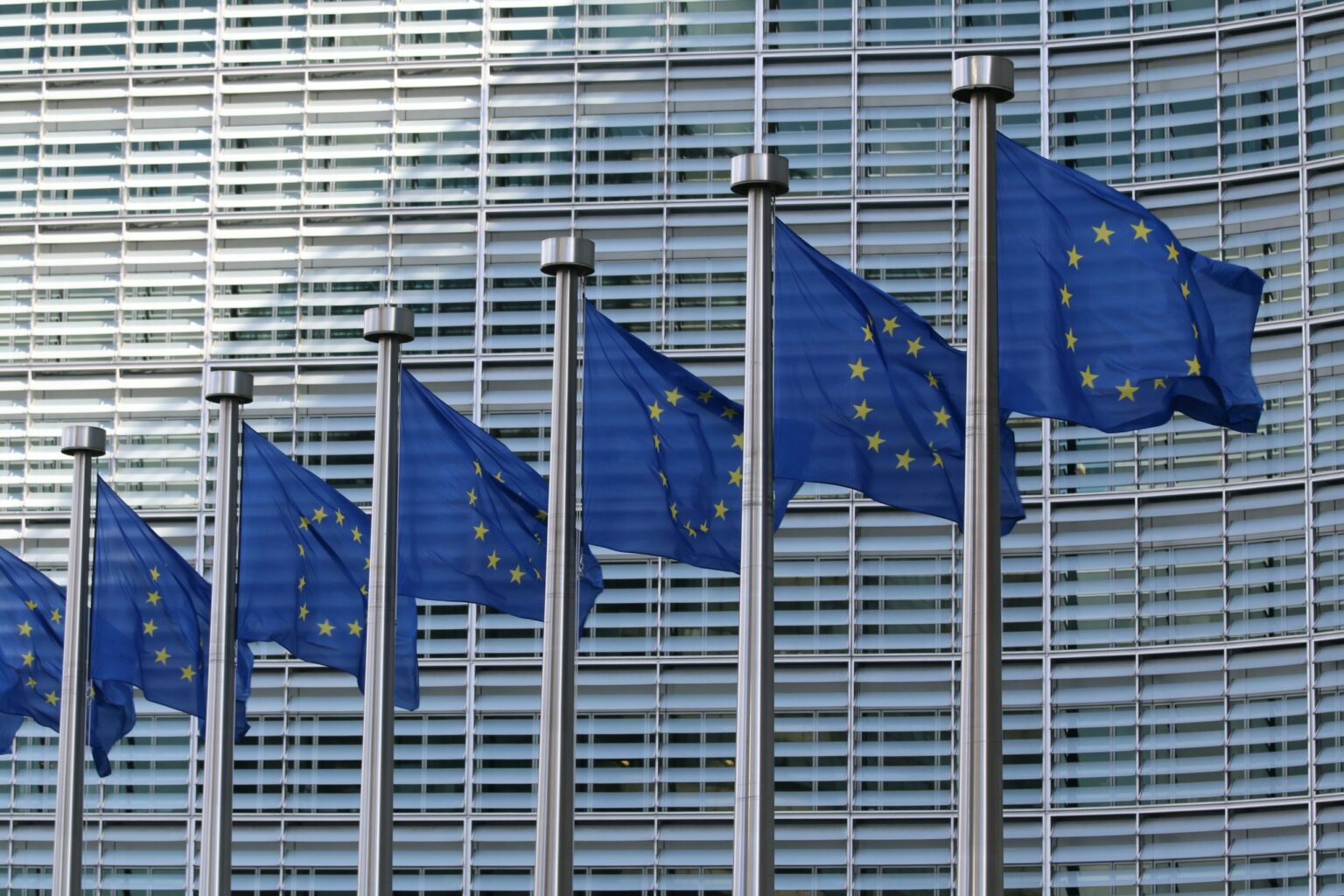
The fundamental rights of LGBTI people need to be a core part of the accession process and EU institutions need to work with the authorities in each accession country to ensure the gaps are tackled and important pieces of legislation are advanced over the next year.
The EU enlargement process has leverage and needs to be fully used to support the adoption of important legislation protecting the fundamental rights of LGBTI people, as well as call out when governments advance laws that go against EU principle of fundamental rights, democracy and rule of law.
Over the last year, not only have we seen the worrying trends of governments challenging the rule of law, an increase in LGBTI phobic hate speech by politicians and religious leader continuing and foreign influence being exerted to challenge advances on human rights continue, but in a number of candidate and accession countries, ruling parties have been pushing legislation forward that is actively limiting the human rights of vulnerable groups including LGBTI people. We have also seen governments putting forward Russian style foreign agent laws in Georgia and Republika Srpska in Bosnia- Herzegovina. LGBTI rights are being used to polarise society, often to distract from a broader undermining of democracy and the rule of law in these countries and other more important socio- economic and political issues.
The annual enlargement report process is a key moment to remind governments of the criteria that need to be met and point out where advancement on rule of law and the protection of fundamental rights are needed to advance the process. While in some countries progress has been too slow and the EU should ensure that important legislative processes are finally seen through (such as the legal gender recognition in Montenegro and partnership recognition for same-sex partners and a new hate crimes legislation in Ukraine), it is important to be very clear that the attempts to put forward laws that actively cancel EU fundamental rights cannot be tolerated and will need to lead to a reconsideration of the status granted by the EU.
It is especially important in this context that the EU insist that the protection of LGBTI people’s human rights are a core part, as they are often falling behind the requirements. The recommendations regarding the human rights of LGBTI people in the EU enlargement reports are key in holding governments accountable to the commitments made. This also means putting an emphasis on ensuring proper implementation of the laws protecting and granting access to fundamental rights. It is key that the EU makes this a priority in all the countries, also by supporting initiatives for training and education.
Through the region of all enlargement and candidate countries, we can clearly see how foreign forces are gaining influence and are challenging alliance with EU values and fundamental rights. The strength of disinformation and anti-LGBTI sentiment being spread across the Western Balkans region, particularly in Serbia, Bosnia and Herzegovina, Montenegro and North Macedonia, has intensified even more since Russia’s war in Ukraine, with LGBTI people and civil society as targets of smear campaigns, hatred and hostility, often originating from the government level, pro-Russia forces and religious leaders. We can see the anti-gender movement gaining more ground, spreading countless hostile and hateful statements and protests, disturbing public order and democratic processes. Politicians, religious leaders and newly formed organisations were among the most common perpetrators of hate speech, which translates into actual hate and violence against LGBTI people.
The anti-rights movement, which is well funded and coordinated, has taken root strongly in the Western Balkans region in the last years. In order to stand against this increasing influence of anti- gender forces and foreign governments trying to undermine the EU rule of law and democracy, strong civil society organisations are key as they continue to build social acceptance for fundamental rights, support vulnerable groups and are a corner stone of democratic societies.
The fact that LGBTI organisations in the Western Balkans have seen EU support decrease has further weakened their work and social cohesion in those countries. A number of LGBTI organisations had to close, and many at brink of closing, while they are facing organised attacks against their physical spaces, as well as against the legal framework which protects and guarantees their equal rights. The EU must be a supporting partner to these organisations, including their views meaningfully in consultations and negotiations, modelling civil dialogue as an important part of a democratic society, and continuing to support LGBTI organisations in the region through funding in the extremely fragile context.
6 Tips to Get Local Media Supporting LGBTI Human Rights in the European Elections

In our joint effort to get candidates for European Elections to pledge their support for LGBTI rights, teaming up with the media is key. That way we can reach more candidates and inform more people about our cause. In this blog, we share some tips to help get your local media engaged in the Come Out 4 Europe campaign.
In a media landscape where so many are looking for attention, and minorities often go unseen, it can be an uphill battle to be heard by politicians amidst a sea of competing issues deemed more pressing. That’s precisely why we must be strategic when using our voices to stop the far right overtaking the upcoming EU elections. Collaboration with local media can gain access to candidate’s attention long enough to get them thinking about how they want to show their clear support LGBTI human rights as part of their commitment to freedom and democracy in their campaigns to get elected this coming June. Here are our top tips to get your local media talking!
1. Find the right media
You might not be able to access mainstream media, but there are alternative outlets that are both credible and receptive to covering LGBTI issues. Look for media outlets that have a track record of covering LGBTI issues progressively and inclusively. The key is to find balance – there is probably a media in your country that is dedicated to covering stories about social justice and equality and is seen as credible and relevant in the mainstream.
2. Pitch stories
Reach out to local newspapers, radio stations, online news platforms, and television channels with a story related to LGBTI issues in your country or locality. Offer to provide them with interesting angles, personal stories, or expert opinions. Include a clear demand or question that challenges a politician, or a group of politicians. If the story gets picked up, it will generate pressure on the politicians mentioned, giving you a higher chance to get a response. If you can’t find the right contact for a journalist, search for them on Twitter, Facebook and Instagram, and message them there.
3. Write letters to editors
Keep an eye on your local media’s opinion section and write letters to the editor on LGBTI human rights topics. Keep your letters short, clear, and to the point, and call on politicians to protect and support LGBTI human rights in the forthcoming European elections.
4. Share your story
If you feel comfortable, share your own experiences as an LGBTI person with local media outlets. Personal stories can be powerful tools for raising awareness and generating empathy. This doesn’t have to be a big production – a simple email or phone call to a reporter can start the conversation.
5. Connect LGBTI rights to the European elections
Use the attention surrounding the elections to insert LGBTI rights into the conversation about broader political issues. Research the platforms and priorities of political candidates and parties, and identify opportunities to link LGBTI rights to topics such as healthcare, education, and social justice. When you have some relevant content, pitch it to journalists. There will be a lot of press conferences and media events already focused on this topic. If you can, go to these events, ask questions in the name of LGBTI voters. Highlight the importance of LGBTI inclusion in political agendas and urge candidates to address these issues. LGBTI rights are integral to broader societal concerns, and by emphasising that we can improve our chances of being heard and our rights not being overlooked during this critical time.
5. Use the Come Out 4 Europe campaign
The Come Out 4 Europe campaign is a platform through which the candidates in every country in the EU can communicate how will they work for LGBTI rights if elected. The campaign and the pledge are ready-to-use platforms for starting conversations, encouraging candidates to share their views, and showing each EU country’s commitment to LGBTI rights. When creating content for media, you can use the campaign to show how your country is doing in comparison to others, for a larger perspective.
In our quest to secure support for LGBTI rights in the European Elections, the power of media collaboration emerges as a crucial ally. The tactics we share here will not only raise awareness but also exert pressure on politicians to address our concerns. On this journey towards equality and justice, we can ensure that our voices resonate loudly and our rights remain firmly on the agenda.
And lastly, don’t forget to vote!
Reach out to us at comeout@ilga-europe.org if you need support or if you require communications materials
Ukraine, LGBTI rights and joining the EU
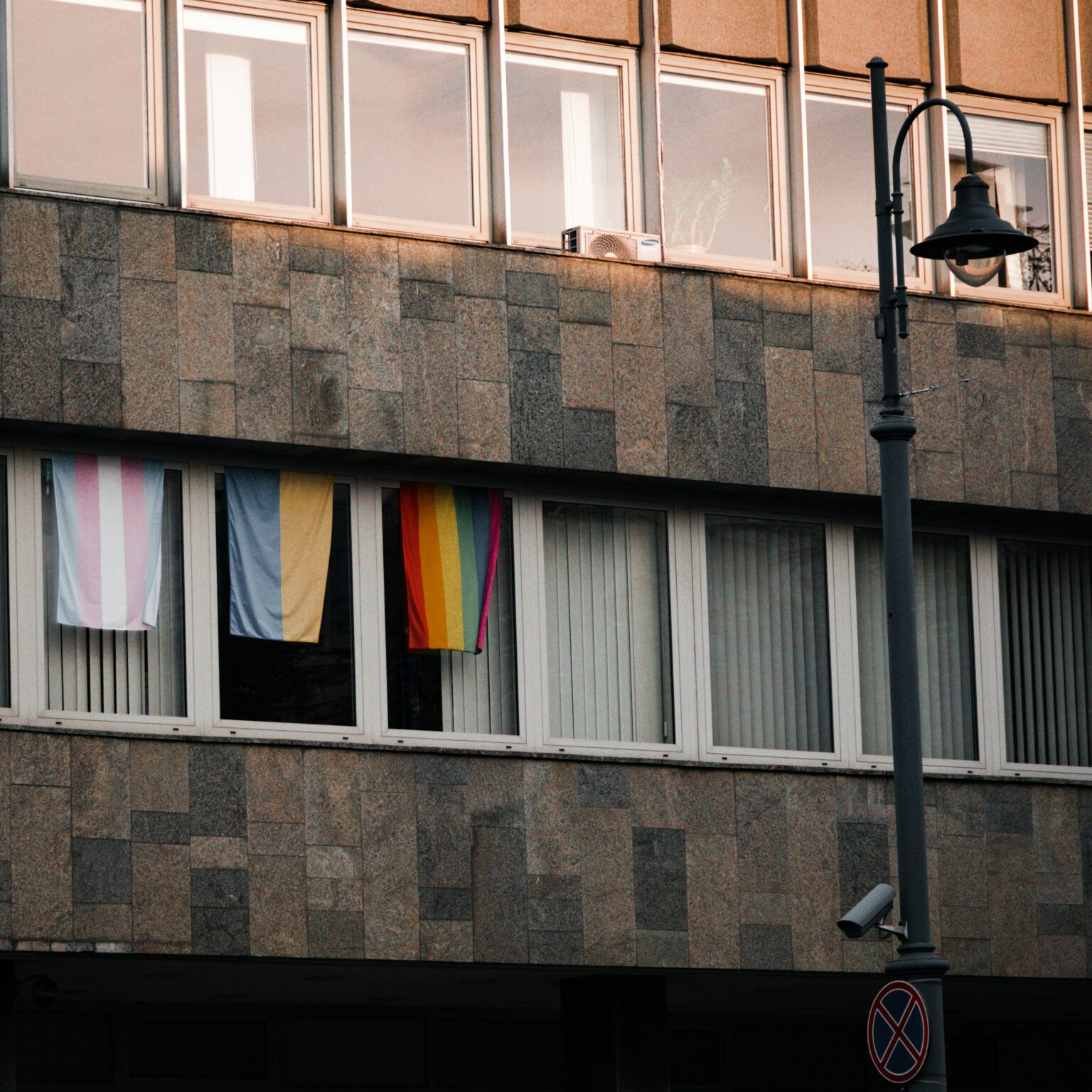
Last year, Ukraine became a candidate country to join the European Union. But the country’s lack of LGBTI rights threatens to hinder the process
As Ukraine charts its course towards European Union enlargement, it’s vital to focus on improving LGBTI rights in the country. While there’s notable support from society – with 72% of Ukrainians now supporting equal rights for LGBT people – and the international community, hurdles within the Ukrainian Parliament, the Verkhovna Rada, and the Ministry of Internal Affairs threaten to impede progress.
Despite significant strides, resistance persists within the corridors of power. This resistance not only undermines Ukraine’s commitment to EU integration but also poses a threat to the rights and freedoms of LGBTI people.
The leverage of the EU accession process cannot be overstated. The European institutions and EU member states have strength and influence to achieve change. By actively engaging with Ukrainian counterparts and lending their support to legislative initiatives aimed at safeguarding the rights of all individuals, the European Commission and Parliament, but also EU governments play a crucial role in Ukraine’s journey towards EU integration.
Recognition of same-sex partnerships
Recently, members of the European Parliament’s LGBTI Intergroup sent a letter to President Volodymyr Zelensky, showing their support for two important draft laws in Ukraine. These laws, if passed, could make a big difference for LGBTI people in Ukraine and bring the country closer to joining the EU.
One of these laws, Draft Law 9103 is the Legal Recognition of Same-Sex Partnerships. Beyond its legal implications, this would symbolise a monumental shift towards equality and non-discrimination, echoing the values espoused by the EU. If passed, it would provide legal protections and rights to same-sex couples, similar to those enjoyed by heterosexual couples, such as inheritance rights, medical decision-making authority, and financial protections – many of these rights reaching a new significance since the onset of the war in Ukraine.
Protection against hate crimes
Another crucial law mentioned in the letter and awaiting the decision of the Ukrainian Parliament, Draft Law 5488, is the Protection Against Hate Crimes – including those motivated by sexual orientation or gender identity. If enacted, it would provide legal protections to LGBTI people and other vulnerable groups who are targeted for violence or discrimination based on their identity.
In its judgment of 11 April 2024 in Karter v. Ukraine, the European Court of Human Rights ruled that Ukraine violated Article 3 (prohibition of inhuman or degrading treatment) in conjunction with Article 14 (prohibition of discrimination) in view of the ineffective investigation of two verbal and physical attacks of the applicant, a gay man, involving homophobic slurs. Further to the first attack, the authorities did not follow up on the applicants’ hate crime allegations and initially classified it as a robbery. The Court noted that the criminal-law classification the national authorities had chosen for the second attack as falling under the ordinary provisions of criminal law undermined their ability to uncover the alleged homophobic motive behind the attack.
The Court specifically considered the lack of explicit recognition of attacks motivated by sexual orientation as an aggravating circumstance in domestic criminal law in general and under Article 161 of the Criminal Code in particular and the difficulty that the absence of such recognition in domestic criminal law causes in the effective investigation of homophobia-motivated attacks. It considers that domestic authorities should “conduct the investigation taking all reasonable steps with the aim of unmasking the role of possible homophobic motives for the attack” as, otherwise, “prejudice‑motivated crimes would unavoidably be treated on an equal footing with ordinary cases without such overtones, and the resultant indifference would be tantamount to official acquiescence to or even connivance with hate crimes.”
This court ruling serves as another reason for Ukraine to prioritize and enact legislation aimed at addressing the issues highlighted, further emphasizing the urgency of legal reform in safeguarding the rights of LGBTI individuals. As Ukraine moves forward on its path towards European Union enlargement, the support of EU institutions and politicians is crucial in achieving meaningful change and upholding the principles of equality and non-discrimination. By enacting these laws, Ukraine not only strengthens its position on the path towards EU integration but also reinforces its commitment to human rights.
6 ways to encourage European Election candidates to pledge their support for the human rights of LGBTI people
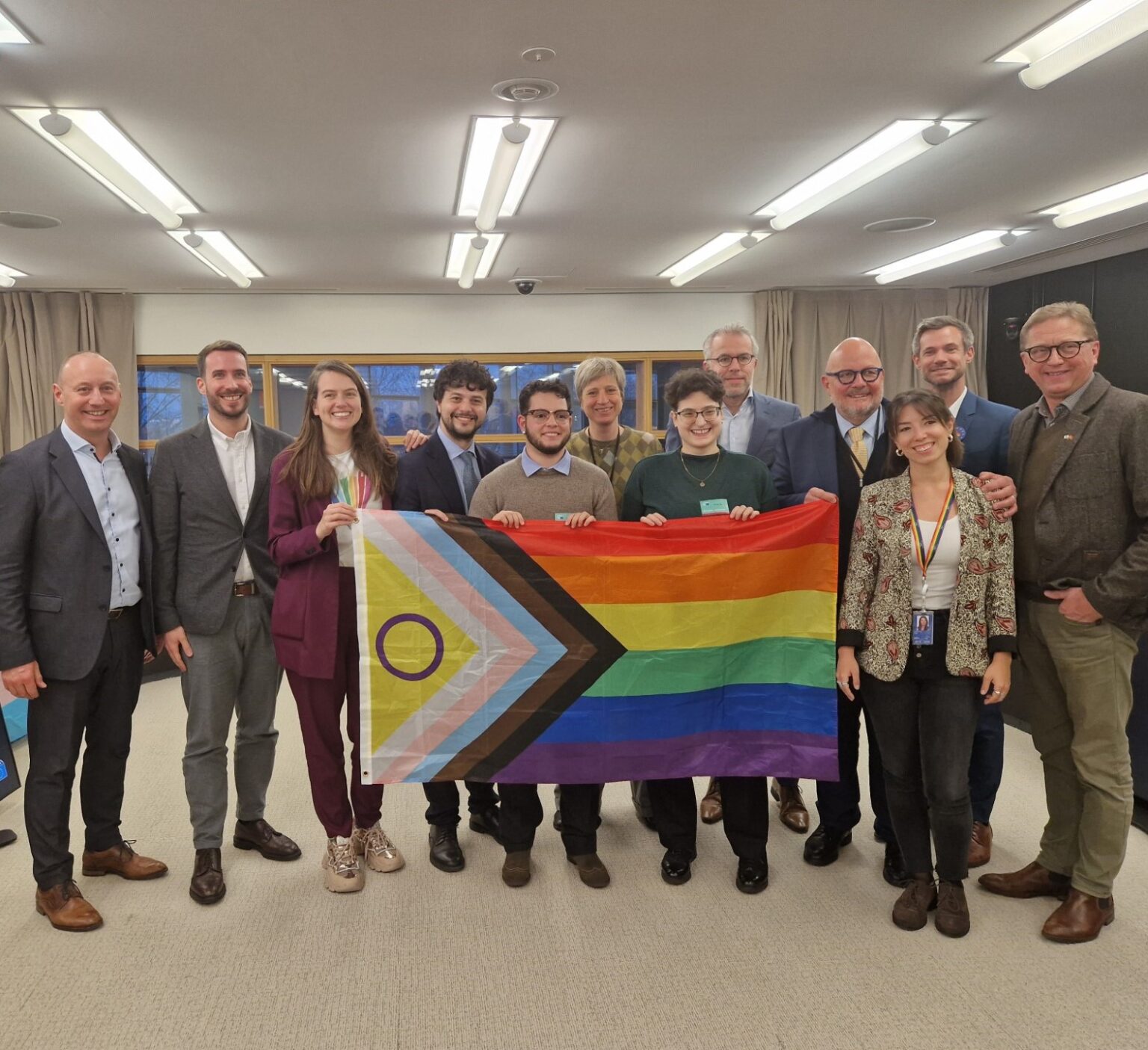
Here are some highly effective, but easy ways to engage your local candidates for the European Elections with the Come Out 4 Europe campaign towards LGBTI freedom and equality across the EU
The upcoming European Parliament elections in June 2024 present an opportunity for candidates to declare their support for LGBTI freedom and equality in the EU and beyond. ILGA-Europe’s campaign, Come Out 4 Europe, is not just a call to action. By signing the pledge on the campaign website, candidates clearly communicate their support for LGBTI voters and allies. It shows that they recognise and acknowledge the demands for steps toward equality. In this blog, we share six low-effort but highly efficient tips designed to mobilise candidates and encourage them to commit to protecting and advancing LGBTI human rights by singing the Come Out 4 Europe pledge.
1. Send them a letter
You can begin by kindly inviting the candidates in your country to sign the pledge. Use our letter example as a basis, adding your unique voice and perspective, or translating it into your national language. Personalised communication with a simple call to action can create genuine connections with politicians.
2. Request a Meeting
Contact your candidate and request a meeting to talk to them about the pledge. At the meeting, present a printed out version of the pledge for them to read. When talking, be polite and firm, but not confrontational. Present facts and figures you have gathered (see above), but also give them personal stories – let them know how real people are being affected. At the end of the meeting, having again asked them to sign the pledge, thank them for their time.
3. Be loud on social media
In a world dominated by digital discourse, social media is a potent tool for advocacy. Use your online presence to actively engage with candidates on various platforms. Amplify the visibility of signed pledges by sharing updates from the Come Out 4 Europe website, tagging candidates and their parties, stimulating a ripple effect of awareness and momentum. Employ simple strategic tactics such as encouraging friendly competition between parties by saying which ones are doing best, and which ones could do better, and spotlight countries that are either excelling or have the potential to improve their numbers of pledge signatures.
4. Leverage your network
Use your pre-existing relationships and affiliations within your community. Reach out to the candidates or political party staff you might know and persuade them to sign the pledge. Turn to your friends, friends of friends, allies, and fellow activists who have connections to the candidates and encourage them to do the same. Attend local events and forums where candidates congregate, such as campaign launches or hustings, and have a friendly conversation – the pledge can serve as a conversation starter with a candidate looking for votes.
5. Mobilise allies
Expand your community, mobilising allies and comrades to enhance our collective voice. LGBTI rights are human rights and even movements whose primary focus lies elsewhere can be amplifiers of this campaign for change. Talk to activists from diverse groups, asking them to participate. Encourage them to actively engage on social media platforms, disseminate campaign updates, and champion the cause. Every interaction, such as a like, share, or retweet, can help candidates realise that the improvement of the human rights of LGBTI people is a political goal they should strive for in the current climate.
6. Use ILGA-Europe’s resources
Explore ILGA-Europe’s extensive collection of resources to give you the right things to say to candidates. From the pledge itself to the in-depth Annual Review of the Human Rights of LGBTI People in Europe, which gives information about how LGBTI human rights are at stake in your country, and the Rainbow Map, these resources can provide you with facts and numbers when you talk or write to your candidates. Equip yourself with facts and compelling arguments drawn from these sources, empowering candidates with the knowledge and conviction to champion LGBTI people’s human rights.
And remember… follow up!
Deciding how you are going to follow up is important. For instance, if you have personally engaged with a candidate and they haven’t signed the pledge, you could phone their office to give a reminder. Or if they seem to not have taken notice of your social media engagement and not signed the pledge, follow up with another message. Don’t be confrontational and don’t bombard. Just a message or two over the coming months is better than going overboard or not messaging at all. If a candidate you engage with signs the pledge, don’t forget to thank them, ask them to share the fact they’ve done it, and to pass the pledge on to other candidates in their parties.
We have the power to influence the future direction of Europe. Let’s unite our efforts, utilise our resources, and encourage candidates to show support for the LGBTI community. Together, let’s work towards securing freedom for LGBTI people in the Europe we want to see.
Reach out to us at comeout@ilga-europe.org if you need support or if you require communications materials
EU candidates called to protect democracy and LGBTI human rights amid political hostility
Amidst a climate where political forces across Europe are attacking the rights of LGBTI people, candidates in the forthcoming European elections are being called upon to pledge to protect and advance the human rights of LGBTI people.
Today, March 6, Europe’s leading LGBTI organisation, ILGA-Europe, have launched the ‘Come out 4 Europe’ pledge, giving candidates in the lead-up to the EU elections the opportunity to show how they will support and protect the human rights of lesbian, gay, bisexual, trans and intersex (LGBTI) people as elected members of the European Parliament.
The ‘Come Out 4 Europe’ campaign arrives in the light of a new report from ILGA-Europe, charting a stark rise in anti-LGBTI speech across the EU member states, which has led to an escalation in violent protests outside schools and libraries, the targeting of Pride marches, and a further rise in attacks against LGBTI people.
ILGA-Europe are asking candidates to stand strong amidst growing attacks on LGBTI rights, and work with LGBTI organisations and activists to counter polarisation and the scapegoating of LGBTI people in political divides.
According to ILGA-Europe’s Advocacy Director, Katrin Hugendubel: “The public discourse is becoming more polarised and violent, and as a result the LGBTI community has experienced the highest and most severe violence across Europe in decades. The very core values and standards upon which the EU was founded – respect for human dignity and human rights, freedom, democracy, equality and the rule of law – are being called into question and human rights, and in particular the human rights of LGBTI people, are facing a strong challenge from far-right forces.
“In the last five years, we have seen political determination to advance the fundamental rights of LGBTI rights paying off across the EU, with the moves by certain member states to limit the rights of LGBTI people finally being addressed by all EU institutions, including supportive member states.
“But at the same time, LGBTI people’s rights and humanity are increasingly being exploited to polarise society, undermine democracy, the rule of law and human rights.”
The Come Out 4 Europe pledge, which can be signed at a dedicated website, comeout.eu, will give candidates the opportunity to show how they will work to protect and advance LGBTI human rights in the coming term.
Says ILGA-Europe’s Executive Director, Chaber, “The protection of the human rights of LGBTI people is deeply interconnected with democracy and the protection of human rights in our societies in general. That’s why it is of grave importance that in the next European Parliament 2024-2029, we have a strong mandate for the Parliament and the Commission to protect and advance LGBTI equality.
“As we witness the rise of political forces that question basic fundamental rights and freedoms, it is a crucial time for the EU to hold fast to the core values upon which it was founded.”
Did you know that acceptance of LGBTI people is stronger than ever across the EU?

Despite hateful campaigns and attacks on LGBTI rights, more and more people across the EU agree that LGBTI people deserve equal rights and a life free from discrimination, according to a new report.
Published last month, the latest Eurobarometer report, charting public opinion in the European Union, shows acceptance of LGBTI people is clearly on the rise across all EU countries. The claim of some governments that they represent the will of the majority of their people when discriminating against LGBTI people, does not hold against the findings.
The report also clearly shows that acceptance is significantly higher amongst people who know someone from the LGBTI community personally, counteracting the characterisation of LGBTI people as an abstract threat by some leaders. Being friends with LGBTI people has a large impact on responses to the survey questions.
The results, however, reflect clearly that ongoing attacks on LGBTI rights have had an impact. The report has found that more than half of the general public say there is widespread discrimination in their country on the basis of gender identity (being transgender, 57%) or sexual orientation (54%). Discrimination against intersex people is in the high numbers too, at 47%. Published last month, the report finds that the highest levels of perceived discrimination are on the basis of being Roma (65%), of skin colour (61%,), and of ethnic origin (60%).
The Eurobarometer survey is carried out every four years, with the last report published in 2019. Public perception of discrimination against trans people has grown by nine percentage points (pp’s) since then, while against intersex people, it is up by eight pp’s. Sexual orientation is up just one pp, however the fact remains that over half of respondents think discrimination on the basis of sexual orientation is widespread.
However, at the same time, a rising number of 69% of EU citizens say that lesbian, gay and bisexual people should have the same rights as heterosexual people, and 64% say that trans people should have the same rights as everyone else.
When it comes to legal gender recognition, 62% believe that trans people should be able to change their civil documents to match their gender identity. Further, 47% believe that official documents should offer a third option (X or O) for those who do not identify as female or male. Notably, for both of these questions, the percent of respondents agreeing increased (3 pp’s and 1 pp, respectively), but the number disagreeing also increased (2 pp’s and 4 pp’s, respectively). This may indicate that there is increased awareness of the issue in the EU, as in both cases, the number of respondents saying that they did not know decreased by 5 pp’s.
Increasing support also for same-sex marriage
72% of respondents say that same sex marriage should be allowed throughout Europe; up three pp’s since 2019. In Hungary and Poland, which have seen much anti-LGBTI rhetoric since the last Eurobarometer report, 42% and 50% of respondents agree with same sex marriage, respectively, showing the resilience of the public’s perspective even in the face of intense political anti-LGBTI pressure. The notable exceptions here are Bulgaria and Romania. Just 17% of Bulgarians agree with same sex marriage and 25% of Romanians.
Support for inclusive education
Most respondents think school lessons and material should include information about sexual orientation (71%) and the existence of multiple gender identities (68%). In 2019, 71% also said that sexual orientation should be included in curricula; so despite the heavy public attacks on inclusive education, support is stable.
In Hungary, the numbers of people agreeing with the inclusion of sexual orientation and gender identities (SOGI) in education have even gone up. There’s an increase of two pp’s in those who agree with inclusion of sexual orientation and a striking eight pp’s in those who agree with education on multiple gender identities.
Levels of comfort
The Eurobarometer survey asks respondents about their levels of comfort with LGBTI people in their lives, including with relationships their adult children are in, as colleagues, and in the highest elected positions.
The numbers in this regard are high. 59% of European citizens, for instance, would be totally comfortable if one of their children was in a love relationship with someone of the same sex, while 48% would be comfortable if their offspring were in love relationships with trans or intersex persons (the Eurobarometer survey puts both trans and intersex together in this series of questions). Lesbian, gay and/or bisexual government leaders would be “totally comfortable” for 68% of respondents (up 4 pp from 2019), while 58% would be happy to have a trans or intersex person in the highest elected position.
A clear message
The overall findings of this Eurobarometer survey are that despite a surge over the past few years in anti-LGBTI hate speech and violence, and negative media reporting particularly in relation to trans people, most Europeans are far more accepting of lesbian, gay, bisexual, transgender and intersex people than it would appear on the surface, and that governments who are introducing legislation that discriminates against LGBTI people are not in accordance with the will of the citizens of their countries. As a measure of attitudes in the EU, it shows that governments should be introducing more protections, while making sure that legislation already in place is fully implemented.
Giving hope comes with responsibility to us, say activists from new EU enlargement countries
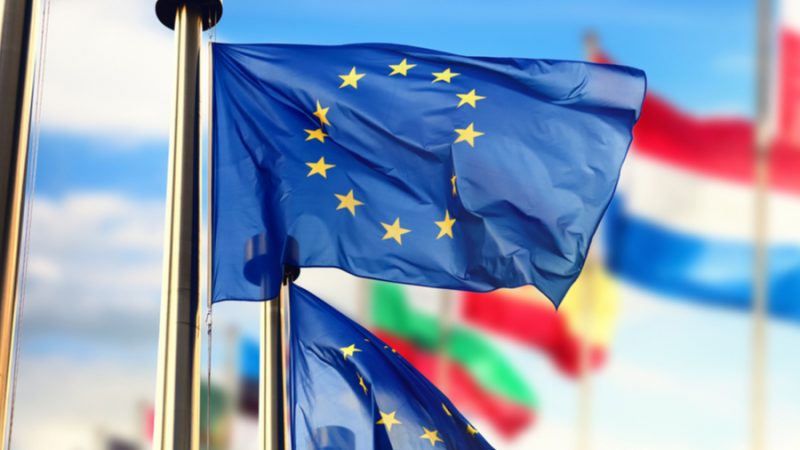
LGBTI activists from new EU enlargement countries, Ukraine, Moldova and Georgia have gathered in Brussels to call on EU representatives to live up to the promise that comes with the accession process
Today, LGBTI activists from Ukraine, Moldova and Georgia met with EU representatives in Brussels to explain serious challenges facing lesbian, gay, bisexual, transgender and intersex (LGBTI) people in their countries, and urge European institutions and Member States to live up to the hope they have given in granting all three countries prospects of becoming members of the EU.
In the wake of Russia’s invasion of Ukraine, the EU has made enlargement a priority in the eastern neighbourhood region, recently opening the path for Ukraine, Moldova and Georgia to join the EU. Ukraine and Moldova were granted candidate status by the EU Council in June 2022, and just last month the European Commission advised that Georgia should also receive candidate status at the upcoming December Council.
The prospect of joining the EU is an important motivation for governments to make reforms on advancement of rule of law and protection of fundamental rights. It is especially important in this context that the EU insists that the protection of LGBTI people’s human rights are a core part of those requirements, as governments are often falling behind the requirements. Recommendations from the EU regarding the human rights of LGBTI people are key tools supporting LGBTI organisations to engage with their governments and hold them accountable to the commitments made.
In all three countries hate crime and hate speech against LGBTI people remains a serious issue. While both Moldova and Georgia have legislation protecting against hate crime on the grounds of sexual orientation and gender identity, hate crimes are consistently not registered and prosecuted. Ukraine still needs to adopt such legislation, which is currently being debated in parliament. Despite the international obligations of these countries to provide a legal framework for the recognition of same-sex couples, none of them have adopted such legislation. The inequality this creates is particularly highlighted in Ukraine at this time, where the lack of rights of same-sex partners of soldiers wounded or killed are laid bare. International standards as regards legal gender recognition are that the procedure should be quick, transparent and accessible without abusive requirements. Currently all three countries fail to live up to this for different reasons.
Says Rina Rybalko from Gender Stream, Ukraine: “We believe that Ukraine being an EU candidate country shows bilateral willingness to cooperate and integrate, especially in terms of common values, human rights standards and opportunities. This is an important step towards strengthening democratic values and supporting civil society in Ukraine, where freedom, diversity and human rights are a priority.”
Leo Zbancă from GENDERDOC-M in Moldova says: ”The LGBTI community in Moldova faces risks due to growing anti-LGBTI narratives promoted by pro-Russian forces. We see Moldova’s move to join the EU as vital for protecting LGBTI rights and ensuring the dignity and safety of the community.”
According to Mariam Kvaratskhelia from Tbilisi Pride: “Georgia should be granted candidate status and should move further on the EU integration path without sacrificing LGBTI rights and equality, which is unfortunately what the government is currently doing.”
The accession process comes with hope in candidate countries that the prospect of EU membership will help secure a better life for LGBTI people through the implementation of EU law and standards. However, the road to EU accession can be long, and hope and ambition can turn into disillusionment and disengagement if reforms are not seen through and the efforts of people and governments are not supported and awarded by the EU.
According to Executive Co-director at ERA, Danijel Kalezić from Montenegro, which became a candidate country in 2010: “In the last 15 years in the Western Balkans, we saw how the EU enlargement process can highly contribute to the legal protection and advancement of human rights for LGBTI communities. Unfortunately, we have also seen how a lack of direct and visible political support from the EU to grassroots movements in crucial moments can result in providing a space for anti-democratic movements to stop progress achieved and push the backsliding that is currently ongoing in our region.”
The meetings between activists and EU representatives in Brussels this week were facilitated by ILGA-Europe, the largest umbrella organisation for the LGBTI movement in Europe. According to ILGA-Europe’s Advocacy Director, Katrin Hugendubel, “These meetings are essential because we need to ensure that all EU institutions engaged in the enlargement process understand what is at stake – the huge potential to work for better respect of LGBTI people’s human rights through the process, but also the big risk of backlash in case the EU is not following through the accession promises.
“We see in the Western Balkans after years of active engagement on advancing human rights and fulfilling accession conditions, people are now disillusioned and the influence and leverage of the EU is quickly diminishing. Tensions in the region are high and the influence of other global forces is very real and worrying. In Georgia, Moldova and Ukraine, people want to move towards the EU and democratic reforms are undertaken to do so. The EU needs to support these efforts and stand clear on its promise of accession.”
EU LGBTIQ Equality Strategy – Second year implementation evaluation
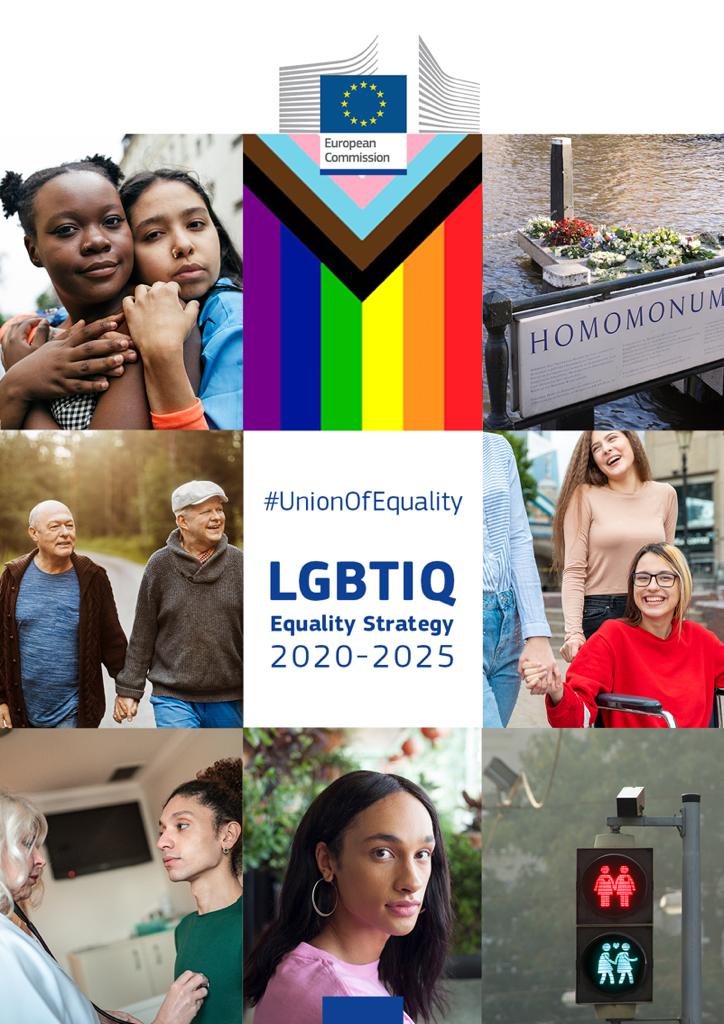
Half-way through, the evaluation of LGBTI organisations is positive, but also pointing clearly to where more is needed to ensure the implementation of the strategy in all areas of EU competence and to fully live up to the commitments the EC proudly adopted with the strategy.
With this briefing, ILGA-Europe wants to highlight five key aspects of our evaluation of the first two years of implementation and set out recommendations to ensure strong implementation of the full strategy by 2024.
EU Enlargement Review 2023
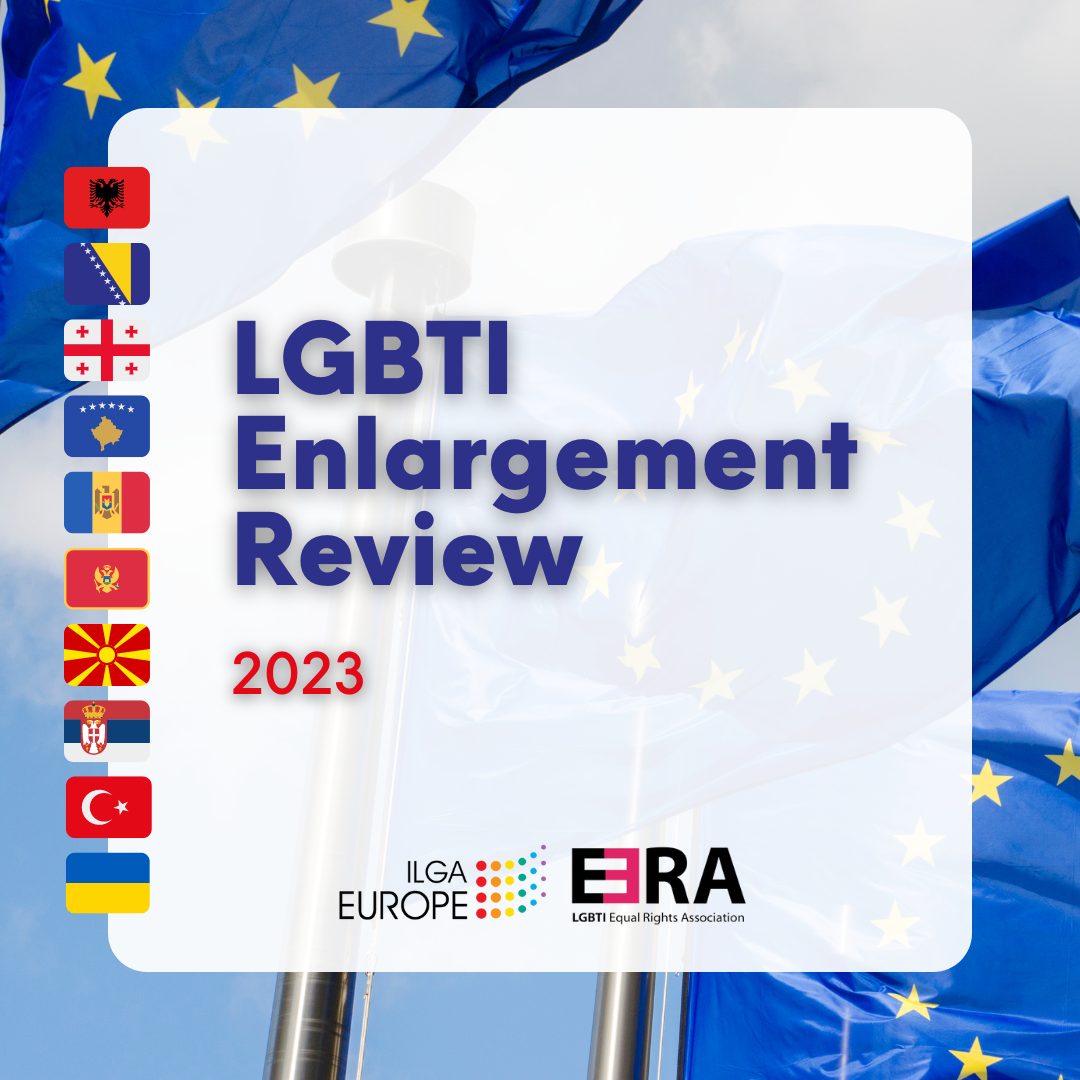
ILGA-Europe has worked with ERA – LGBTI Rights Association for the Western Balkans and Turkey, to produce our annual LGBTI Enlargement Review, assessing gaps in legislation and policy for the protection and advancement of the human rights of LGBTI people in the enlargement countries, and identifying priorities the EU should insist authorities in each country need to tackle in the coming year, as identified by LGBTI activists in the respective countries.
2022 was an historic year for the enlargement process, as the EU expanded its promise of a perspective for EU accession to include Ukraine, Moldova and Georgia, following the beginning of Russia’s war in Ukraine on 24 February 2022. All three countries are now included in the EU’s annual enlargement reporting process. As ILGA-Europe has member organisations in all of the newly added countries, this year’s LGBTI Enlargement Review covers the perspectives of LGBTI civil society from all ten countries: Albania, Bosnia & Herzegovina, Georgia, Kosovo, Moldova, Montenegro, North Macedonia, Serbia, Turkey and Ukraine.
This year’s LGBTI Enlargement Review also follows a new format. We wanted to particularly highlight the importance of implementation of already existing policy and legislation, as it has become commonplace for Enlargement countries to adopt a legal framework aligning with EU standards, but not actually implementing it. As a result, each country chapter is divided into the below headings:
- Main legislation/policy to be drafted/adopted to ensure non-discrimination and access to justice for LGBTI people (priorities for the coming year)
- Implementation of already-existing legislation/policy
- Legislation/policy in process
- Feedback on the European Commission’s 2022 Enlargement Report (where applicable)
- Recommendations to the EU
These headings are then complemented by a section linking readers to the respective country chapter of ILGA-Europe’s Annual Review 2023, in order to understand the reality on the ground and more nuanced context, which often varies significantly from legislative frameworks. The chapter on Turkey is structured in a different way, in order to present the current state of play prior to the elections in May, and will be updated to reflect the priorities that emerge after the elections.
In all of the enlargement countries, we can unfortunately identify a clear trend of rule of law being challenged, foreign influence being exerted to challenge advances on human rights, including the rights of LGBTI people, and an increase of hate speech translating into violence on the ground, as well as ongoing challenges to freedom of assembly and association.
In this context, LGBTI topics are being used to polarise society, often to distract from a broader undermining of democracy and the rule of law in these countries and other more important socio-economic and political issues.
It is thus important that the EU renews a clear prospect for EU enlargement, not only for Ukraine, Moldova and Georgia, but most importantly in the Western Balkans. The commencement of accession talks with Albania and North Macedonia is an encouraging step in this regard. It is important that the EU places LGBTI rights firmly into all its considerations, and that demands on advancing the protection of the human rights of LGBTI people are put on the same footing as important processes on fighting corruption and advancing the rule of law.
Activists on Accession to the EU
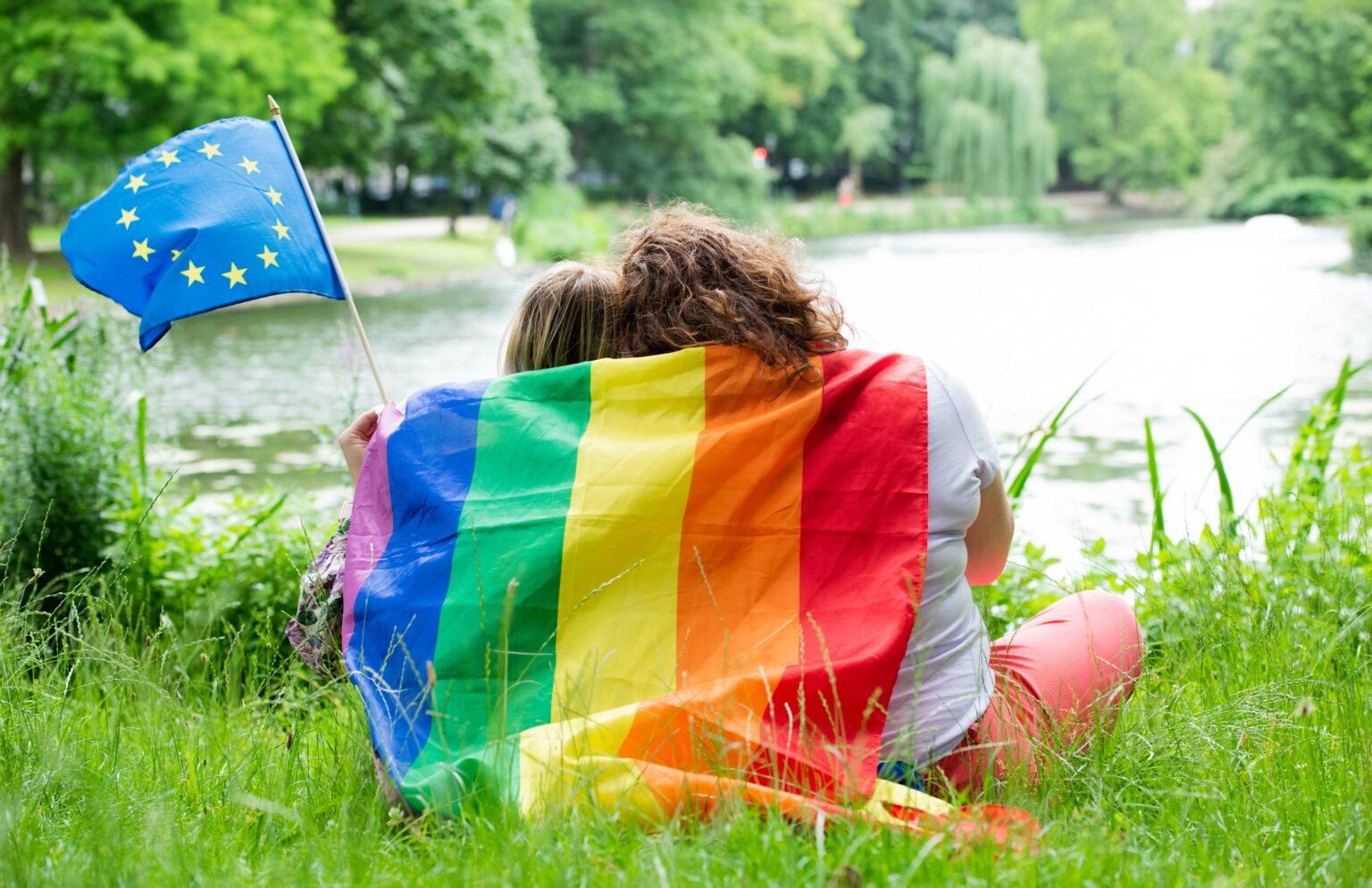
Although achieving EU membership can take several years, even decades, the accession process can already have a positive impact in LGBTI people in a candidate country. We speak to activists in the latest candidates, Ukraine and Moldova, and from Montenegro, which has been a candidate since 2010.
Since its foundation, the EU family has kept its doors open to new members who share the same values. They must be committed to apply, support and promote the EU’s democratic principles and practices in their territories and overseas. Once the request of a European state to join the EU has been agreed by current EU member states, the accession process begins. The benefits of joining are multiple, including access to billions of EU funding, visa free access to EU countries, and Free movement of labour, goods, services and capital.
During the process, the candidate country must satisfy a number of political and economic criteria as well as administrative and institutional capacity.
These criteria include respect for the human rights of LGBTI people. In our latest podcast at The Frontline we spoke to LGBTI activists in Ukraine and Moldova, the latest countries to have been granted candidate status, and in Montenegro, which has been a candidate member since 2010.
Lenny Emson, Ukraine
Lenny is the Director of KyivPride and a board member of Transgender Europe. Earlier this year, shortly after Russia invaded Ukraine in late February, the country applied for membership of the EU and it was granted candidate status just a few months later, along with Moldova. Lenny says the accession process “brings a bit of hope” to LGBTI people in a country that is still battling against Putin’s invasion.
“In practice this could mean the adoption of marriage equality and anti-hate legislation. Right now, if a person in a same-sex relationship gets hurt in the battlefield, their partner will not have the right to make medical decisions. This is why marriage equality in Ukraine is one of the priorities for LGBTI activists at the moment and the EU candidate status is pushing it up in the political agenda.~
Before the war started, anti-hate legislation to protect LGBTI people from biased-motivated crime was already in the makings. According to Lenny, its adoption would would be gaining a “right we’ve been fighting for in the five past years”.
Now more than ever, LGBTI activists advocate for the protection of sexual orientation and gender identity grounds as “anti-LGBTI groups that existed before the war now feel pretty much okay,” as Lenny explains. “Since the war started over 100 cases of LGBTI-phobic crimes have been reported to civil society organisations.”
Anastasia Danilova, Moldova
Anastasia is the director of GENDERDOC-M and a board member of ILGA-Europe. Just a few days after Ukraine’s request in early March 2022, Moldova applied for EU membership. The country also became candidate member in June.
“Definitely it’s a great opportunity for LGBTI people in the country,”. Anastasia says. There have been already some positive changes linked to the EU accession, like the ratification of the Istanbul Convention, which entered into force in the country in May, and the adoption of anti-hate crime legislation which includes sexual orientation and gender identity as protected grounds.
“Implementation will be a huge issue, but it’s already a big step. Until now, because of lack of legislation, crimes against LGBTI people were not registered in the official statistics.”
For Moldovans, the EU accession talks are also a security matter as pro-Russian parties try to destabilise the progressive government. “EU enlargement is the only chance for the future, for LGBTI people to enjoy equality,” Anastasia explains.
Danijel Kalezić, Montenegro
Danijel worked for years as the Executive Director of Queer Montenegro , but has now become the Co-director of ERA, the LGBTI Equal Rights Association. 12 years after Montenegro was granted EU candidate status, Danijel’s insights on the process and its impact are different to those from Lenny and Anastasia.
He sees a gap between “the paper” and the practice. “In many countries the EU enlargement is been used to improve the human rights framework. Montenegro is a good example of this. This year the country made it to the top-10 of the Rainbow Map and Index and has made major legislative changes in recent years to protect the rights of LGBTI people, including same-sex unions. However, if we look to what’s happening in real life, [the change] is not followed.”
This is because there are no communication campaigns following the legislative changes. “To enjoy all the rights that we have now on paper, we need to be able to change hearts and minds. And that change is not going as fast as the change of the legal framework,” Danijel says.
The EU candidate status can be “an amazing boost for the human rights of LGBTI people, to start conversations, but I would like to see more pressure from the EU on the government and stakeholders to talk about the importance of this process.”
Danijel points out to the need of speaking of human rights not only important to become a member of the EU, but above all, for all citizens of the country.
Danijel, Anastasia and Lenny are all guests on our latest two-part podcast episode exploring the effect of the EU accession process on candidate countries, alongside former member of European Parliament, Marije Cornelissen, who has worked extensively on the accession process, and ILGA-Europe’s advocacy director, Katrin Hugendubel, to talk about our long history of working alongside candidate countries to advocate for LGBTI rights and equality.
Hungary to be Brought Before Top EU Court For its Ban on LGBTI Content
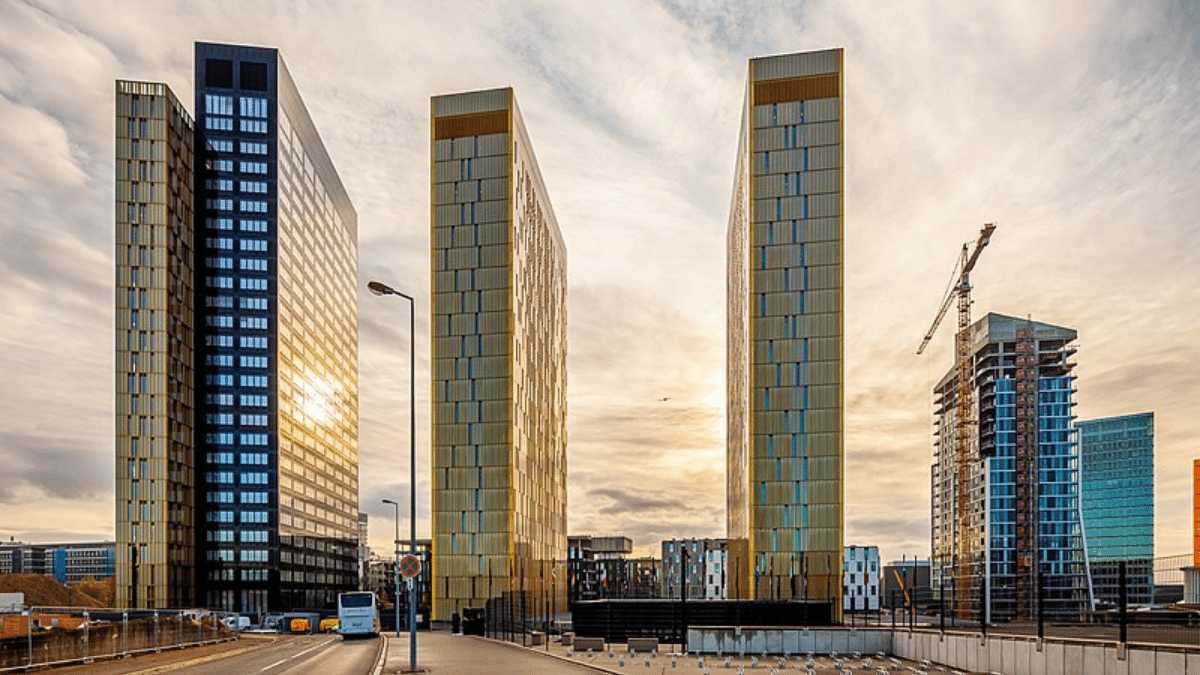
The European Commission has referred Hungary to the CJEU over discriminatory amendments adopted in June 2021, which ban the “portrayal and the promotion of gender identity different from sex at birth, the change of sex and homosexuality” to under 18s.
Today, 15 July 2022, the European Commission formally referred Hungary to the Court of Justice of the European Union due to Hungary’s unsatisfactory response to concerns raised in the “reasoned opinion” sent by the Commission in December 2021.
This “reasoned opinion” was the second stage of the infringement process launched against Hungary in July 2021, in which the Commission outlined its concerns about the amendments breaching various aspects of EU law, asked for clarification over certain issues, and requested the amendments be brought in line with EU law.
In particular the Commission is concerned about discrimination against LGBTI people when it comes to various areas of EU competence, including the freedom to provide services, the free movement of goods, the Audiovisual Media Services Directive, the e-commerce Directive, freedom of expression and information, the right to respect of private life, and the right to non-discrimination.
ILGA-Europe’s member organisation, Hátter Society has reported that the amendments have already had a severe impact on LGBTI people in Hungary, as media service providers, bookshops, libraries, schools, and other actors covered by the law have begung to implement it voluntarily, in fear of sanctions. The discriminatory amendments and government campaigning around them has also resulted in a stark increase in hate crime against LGBTI people, and the amendments also leave LGBTI people and organisations at risk of arbitrary legal proceedings.
The Commission has found that Hungary’s response to their concerns in relation to equality and the protection of fundamental rights is unsatisfactory and does not include any commitment to remedy the incompatibility of the amendments with EU law, and have therefore decided to refer Hungary to the EU’s Court of Justice.
According to ILGA-Europe’s Executive Director, Evelyne Paradis: “It is encouraging to see the European Commission strongly defending EU law and the principle of non-discrimination when it comes to the treatment of LGBTI people. These amendments breach a variety of EU laws in a wide range of areas, and have already had a devastating impact on the rights of LGBTI people in Hungary. For too long the Hungarian government has been using LGBTI people as a political scapegoat; the rule of law must prevail in order to stop such an abuse of power. Now it is over to the Court of Justice of the European Union to live up to its legal responsibilities and defend EU law and the right of LGBTI people to live free from discrimination.”
To learn about the anti-LGBTI amendments in Hungary, and how the media, bookshops, libraries, schools etc. are implementing them, read this alarming report.
Read the Commission’s press release, which explains in more detail about which EU laws are breached here.